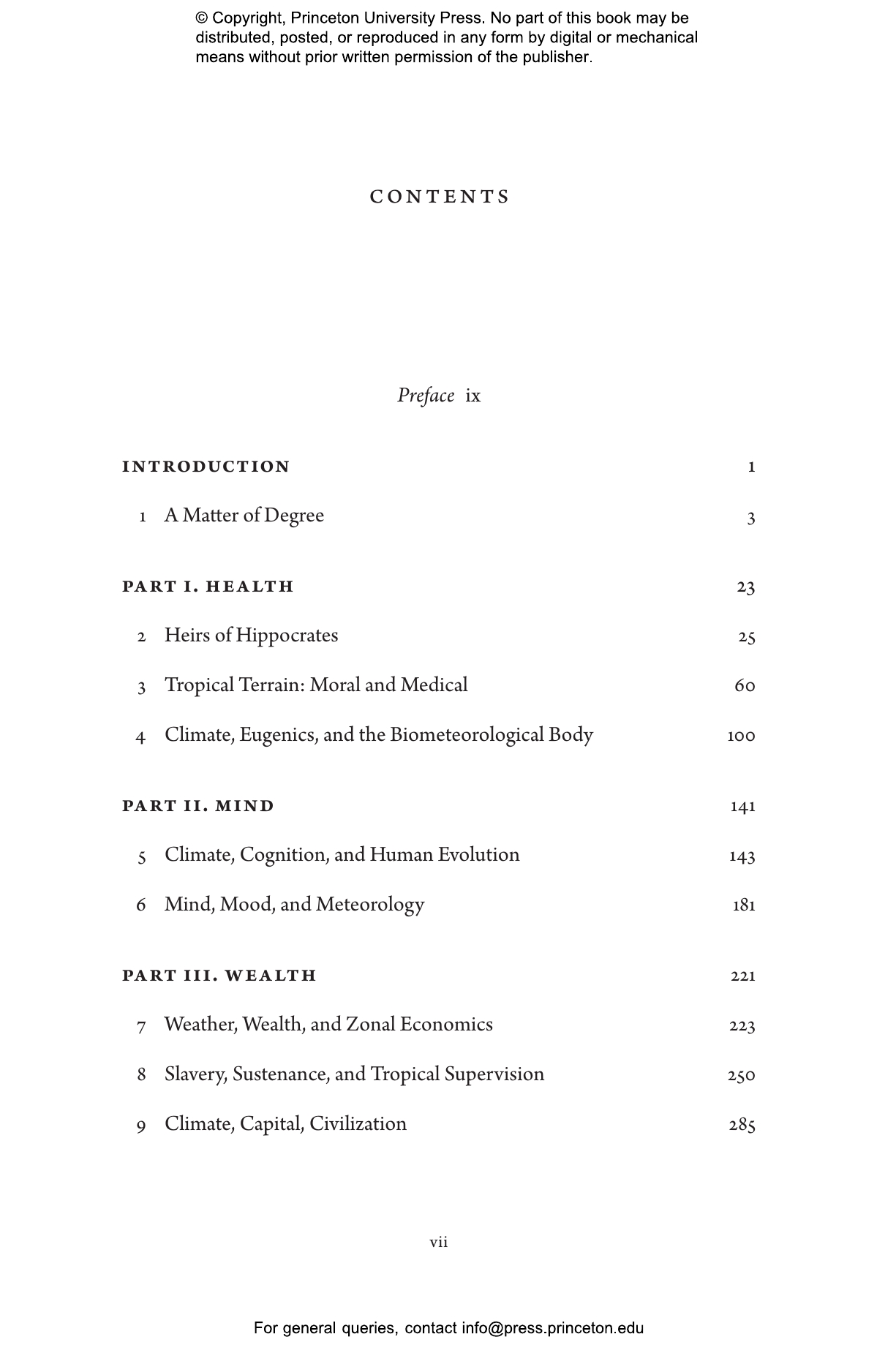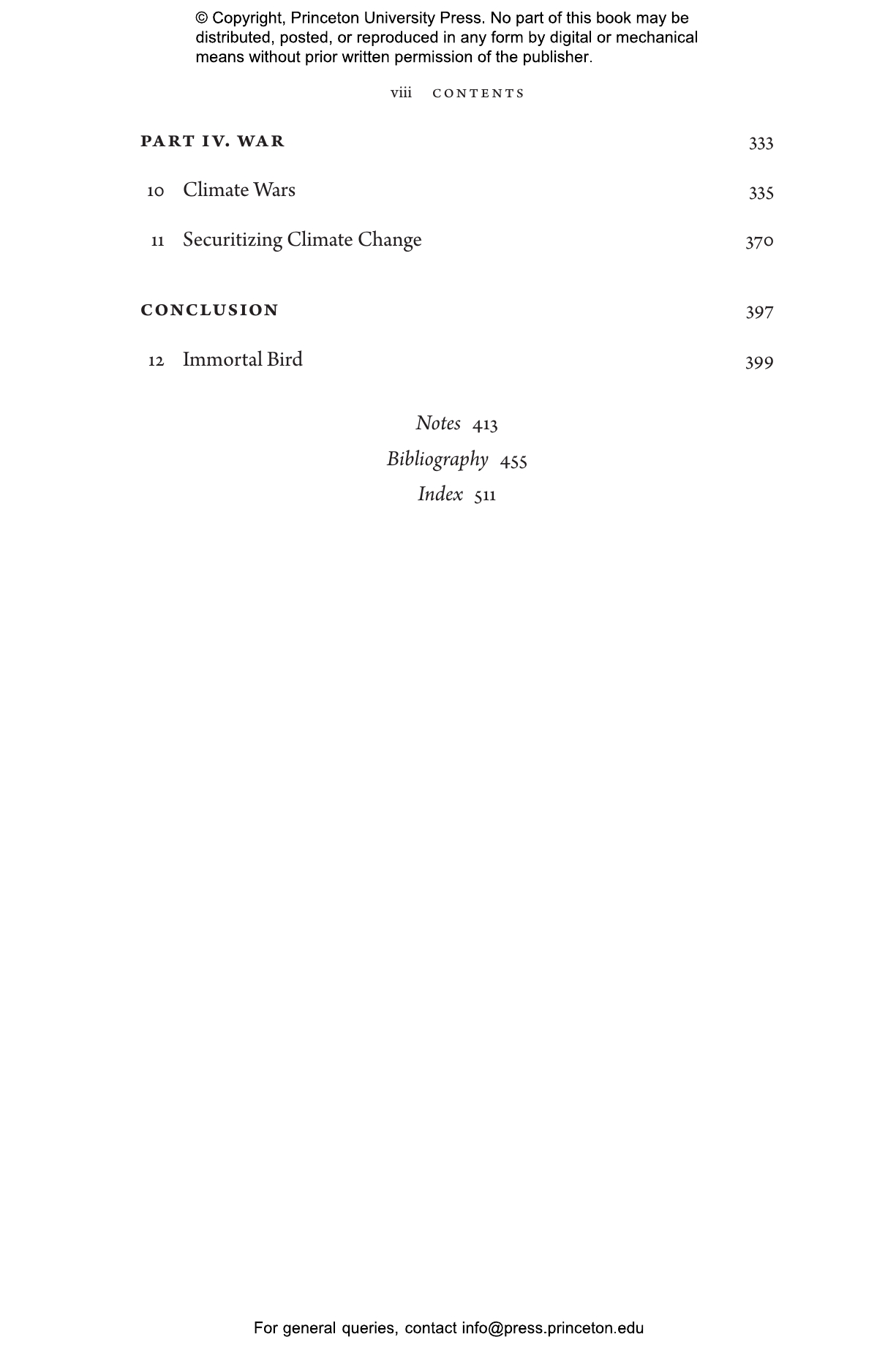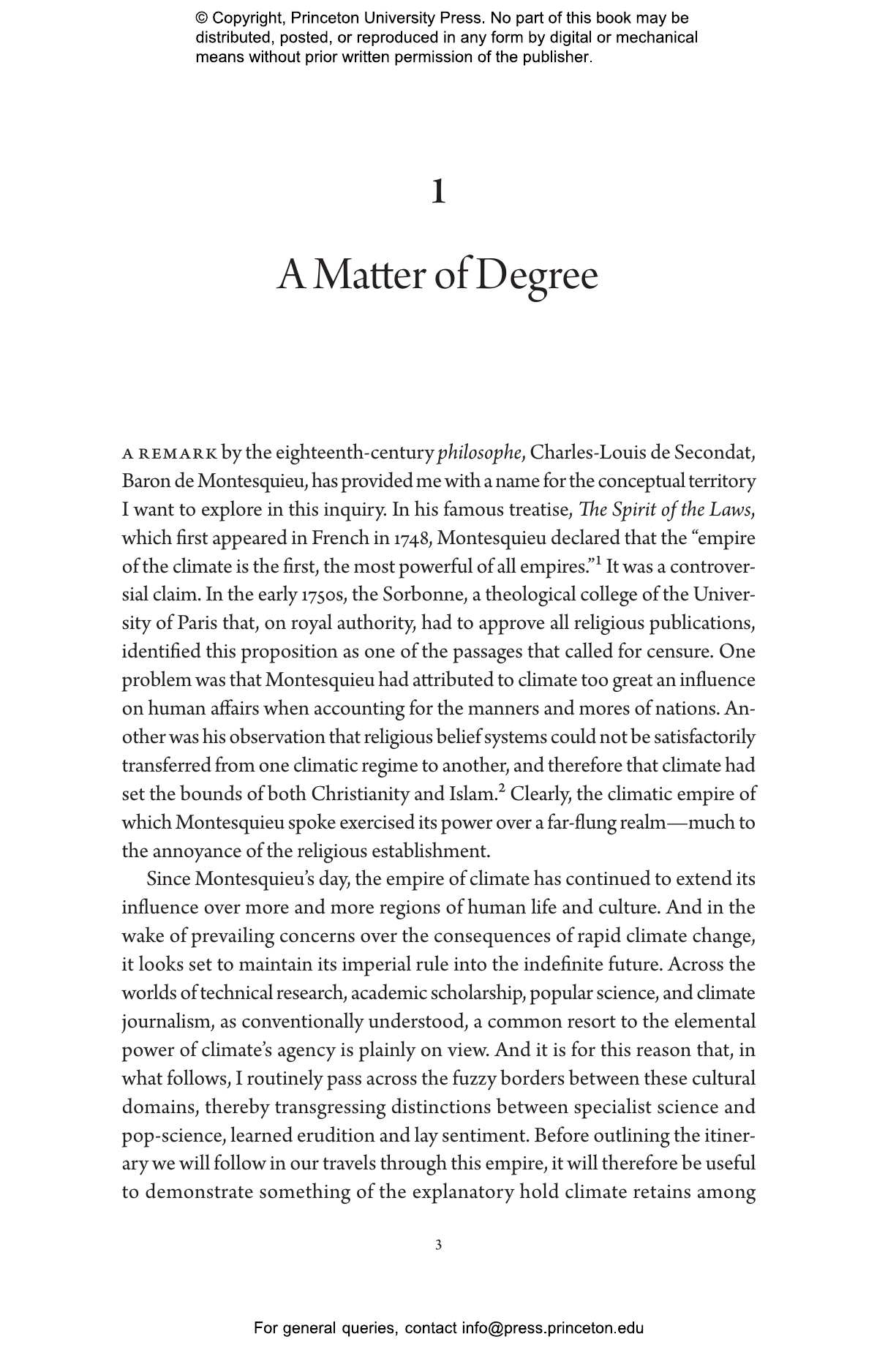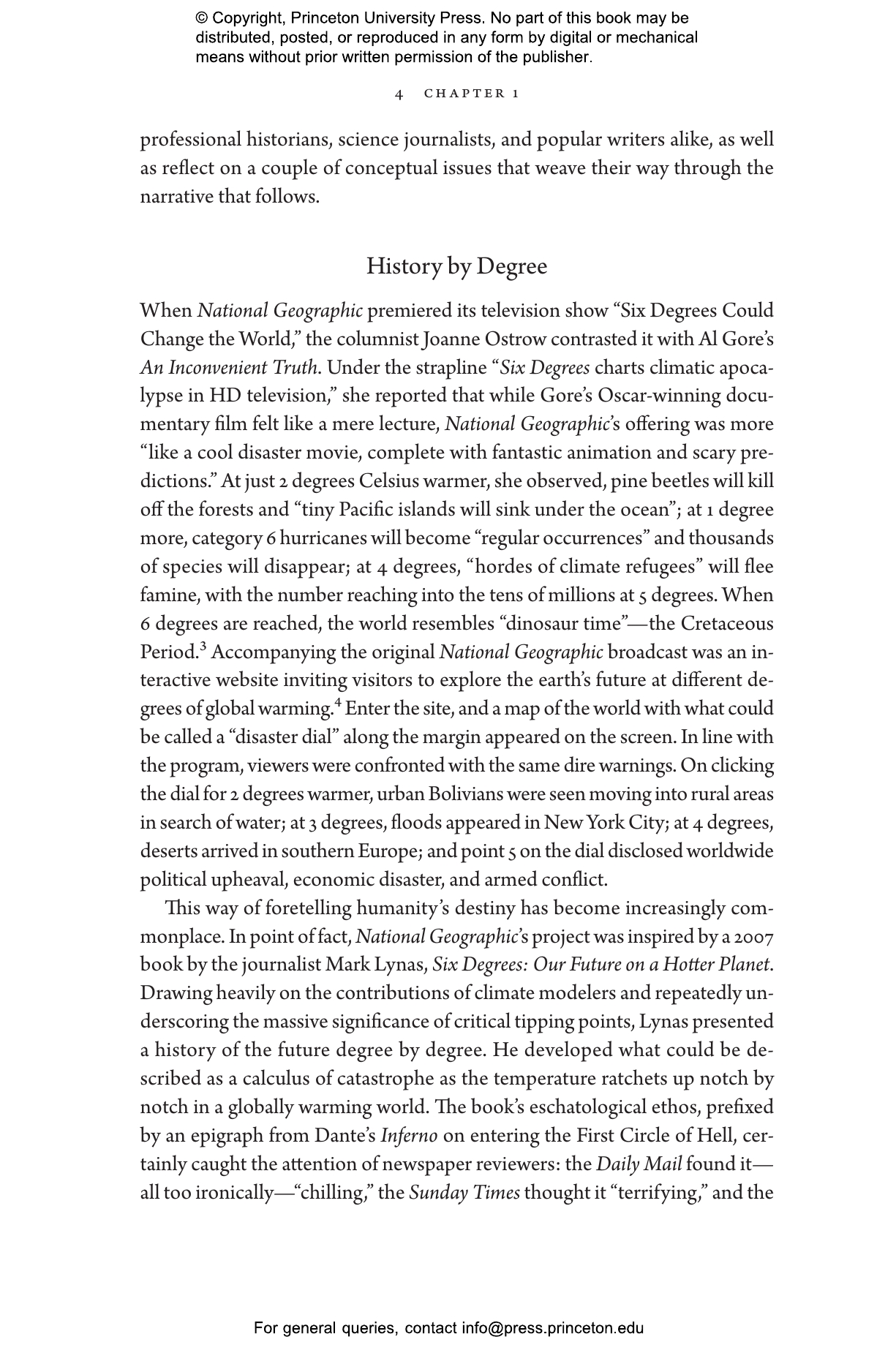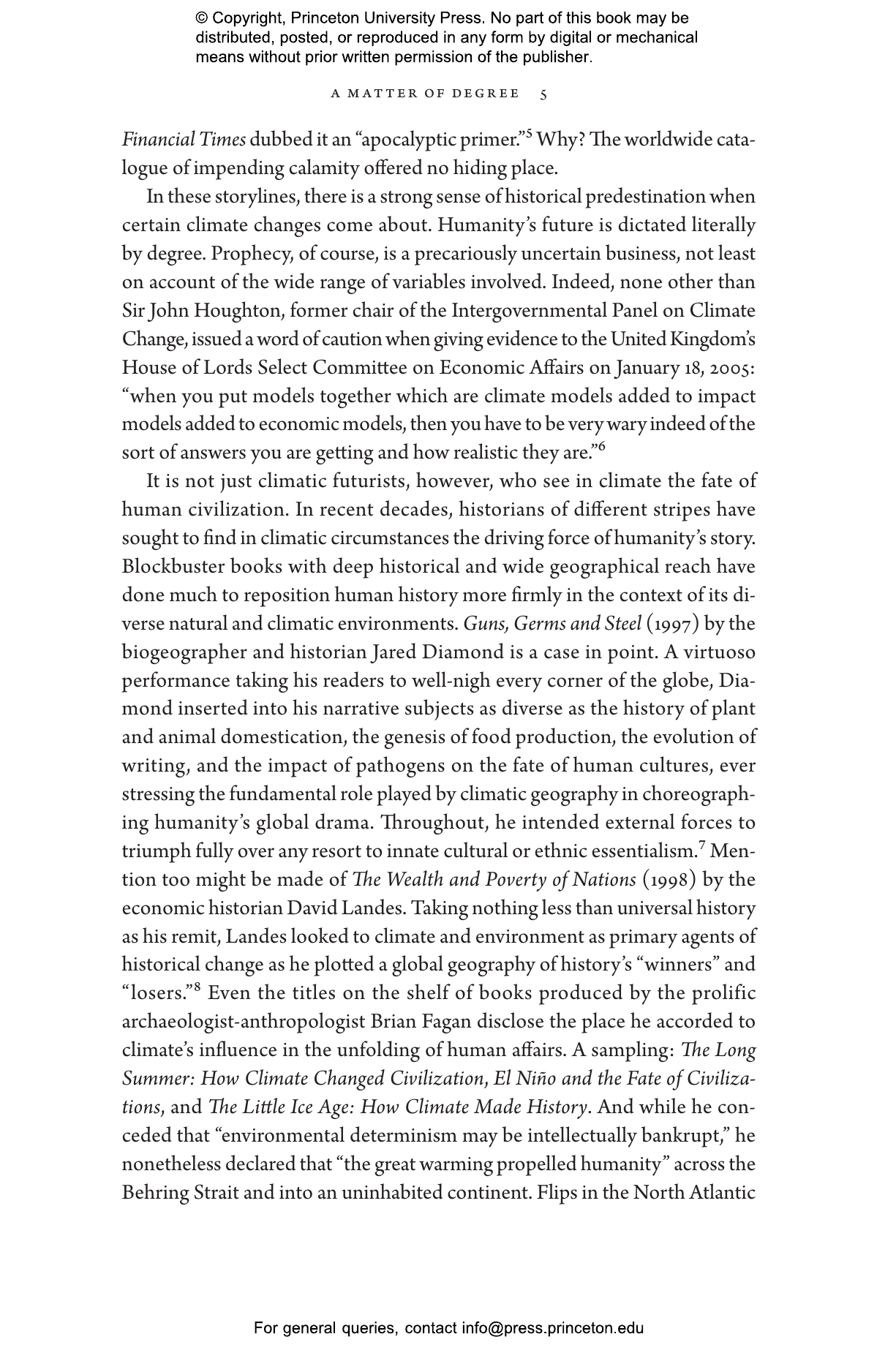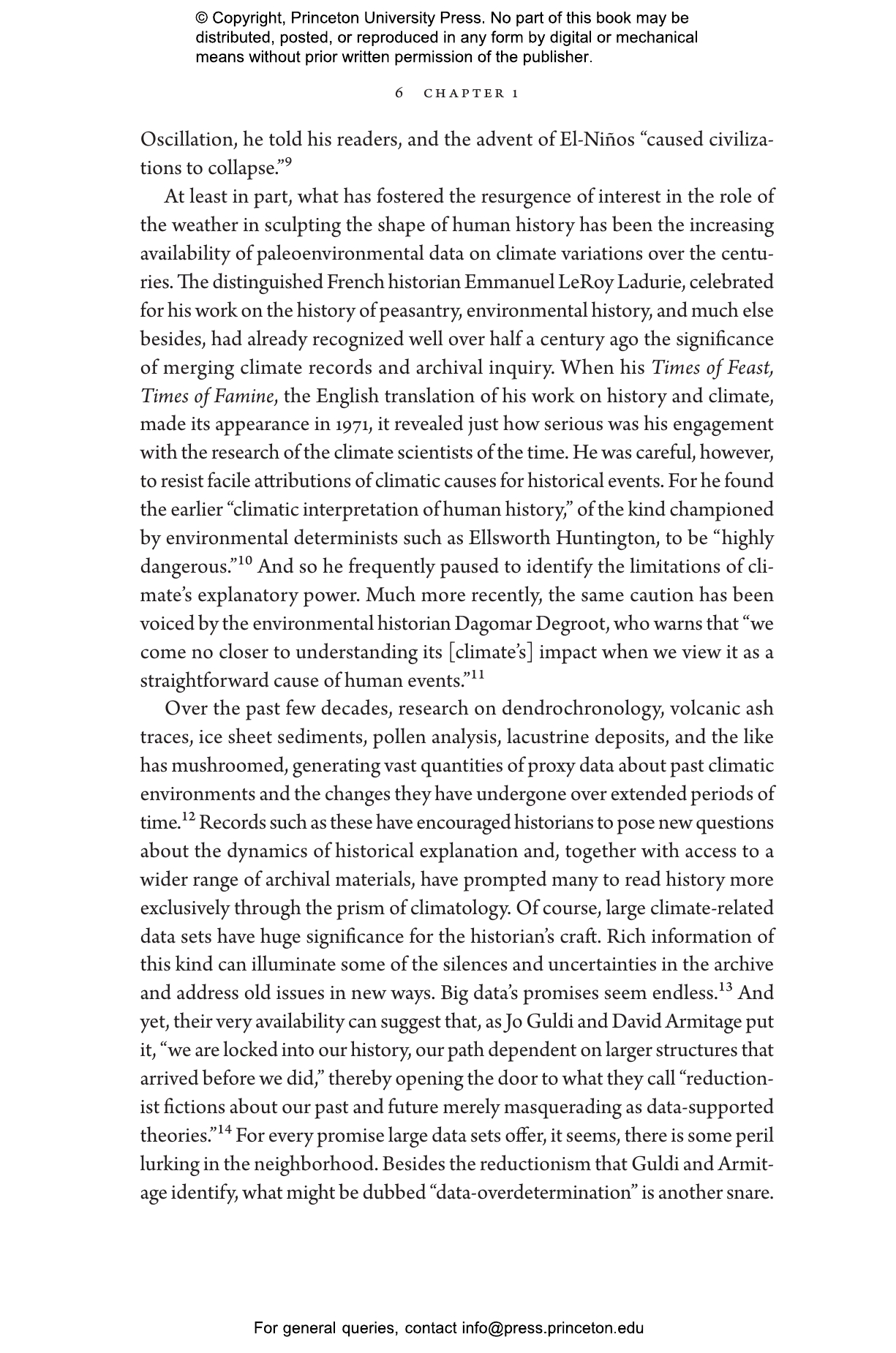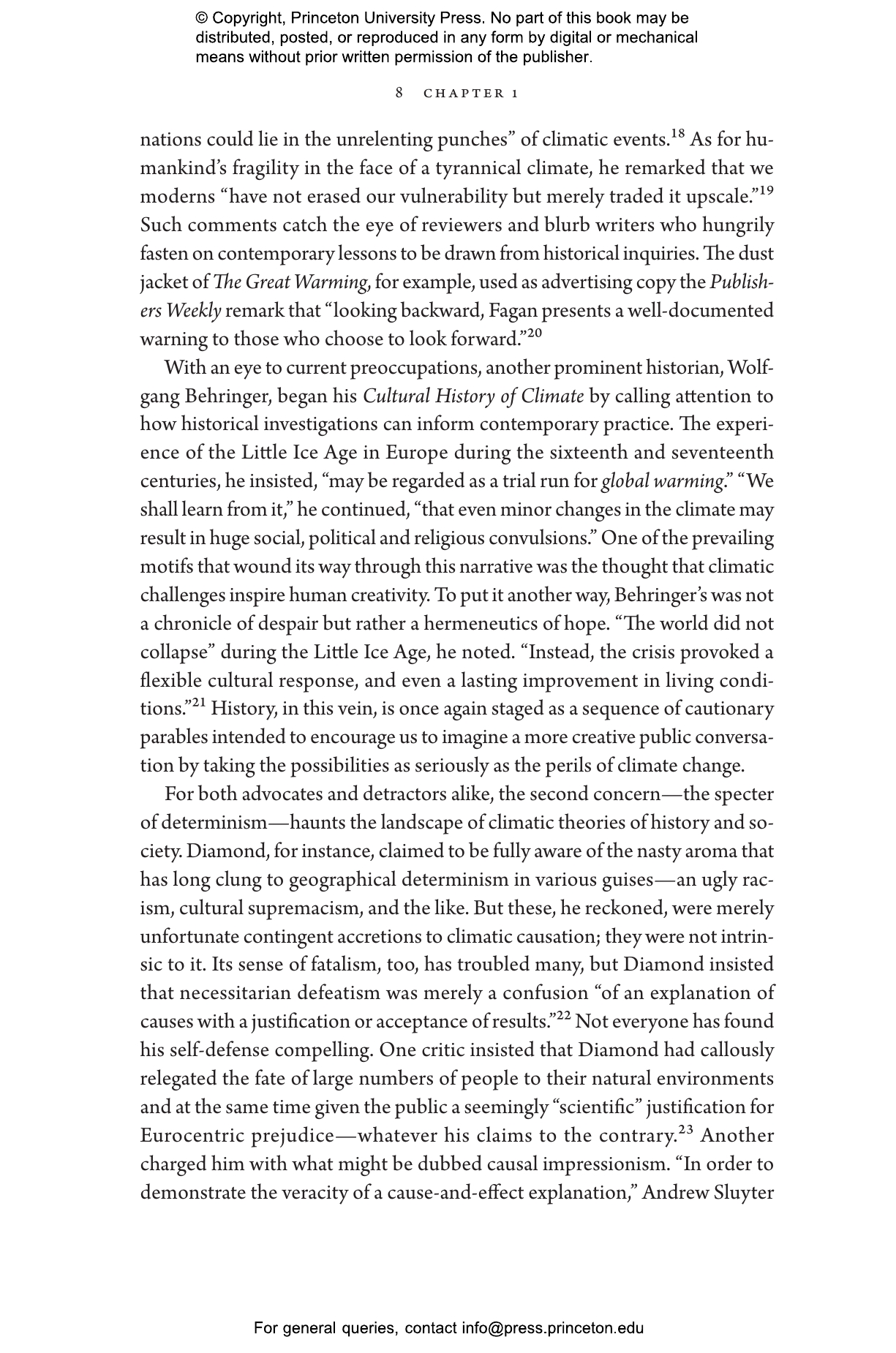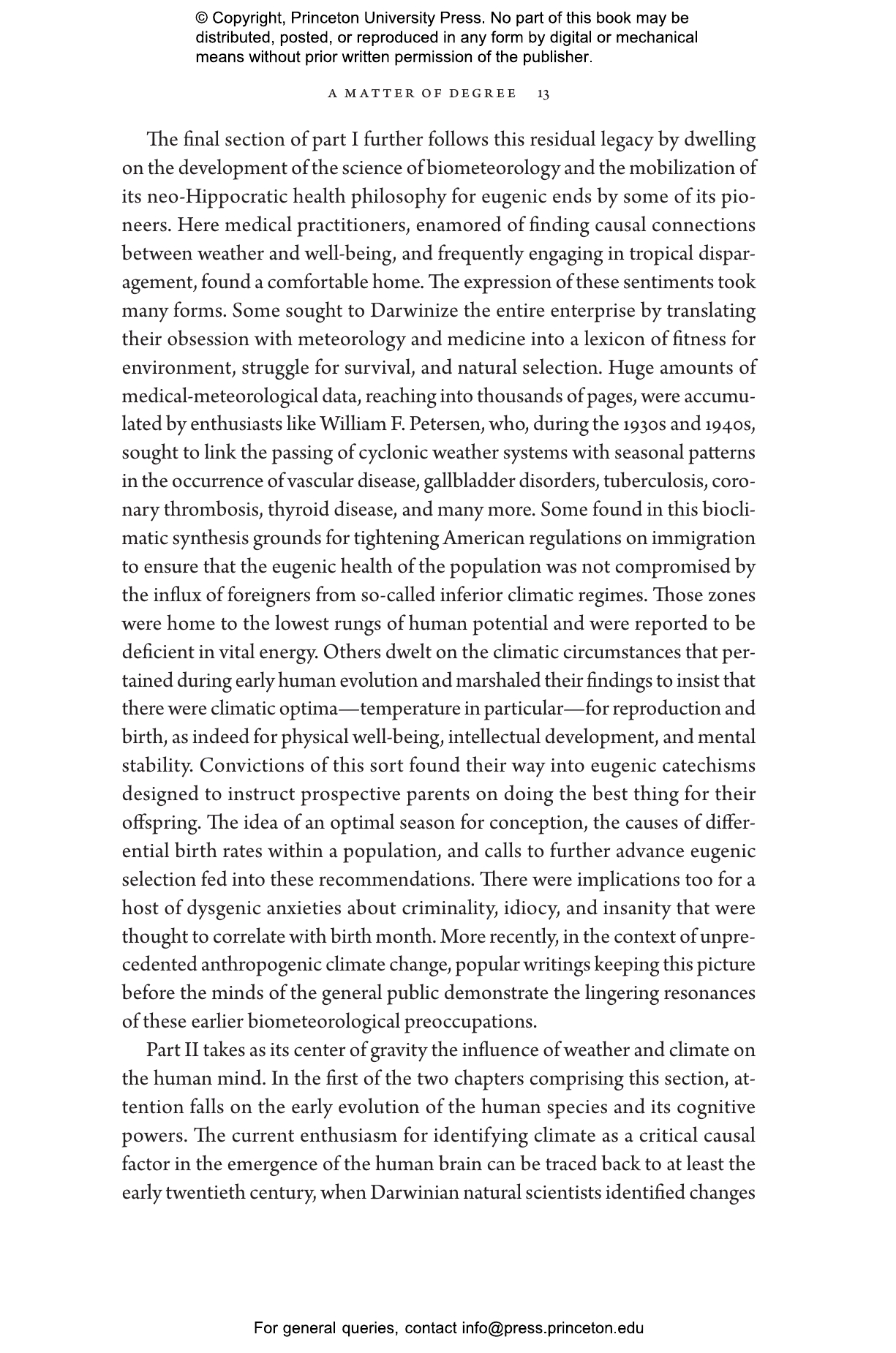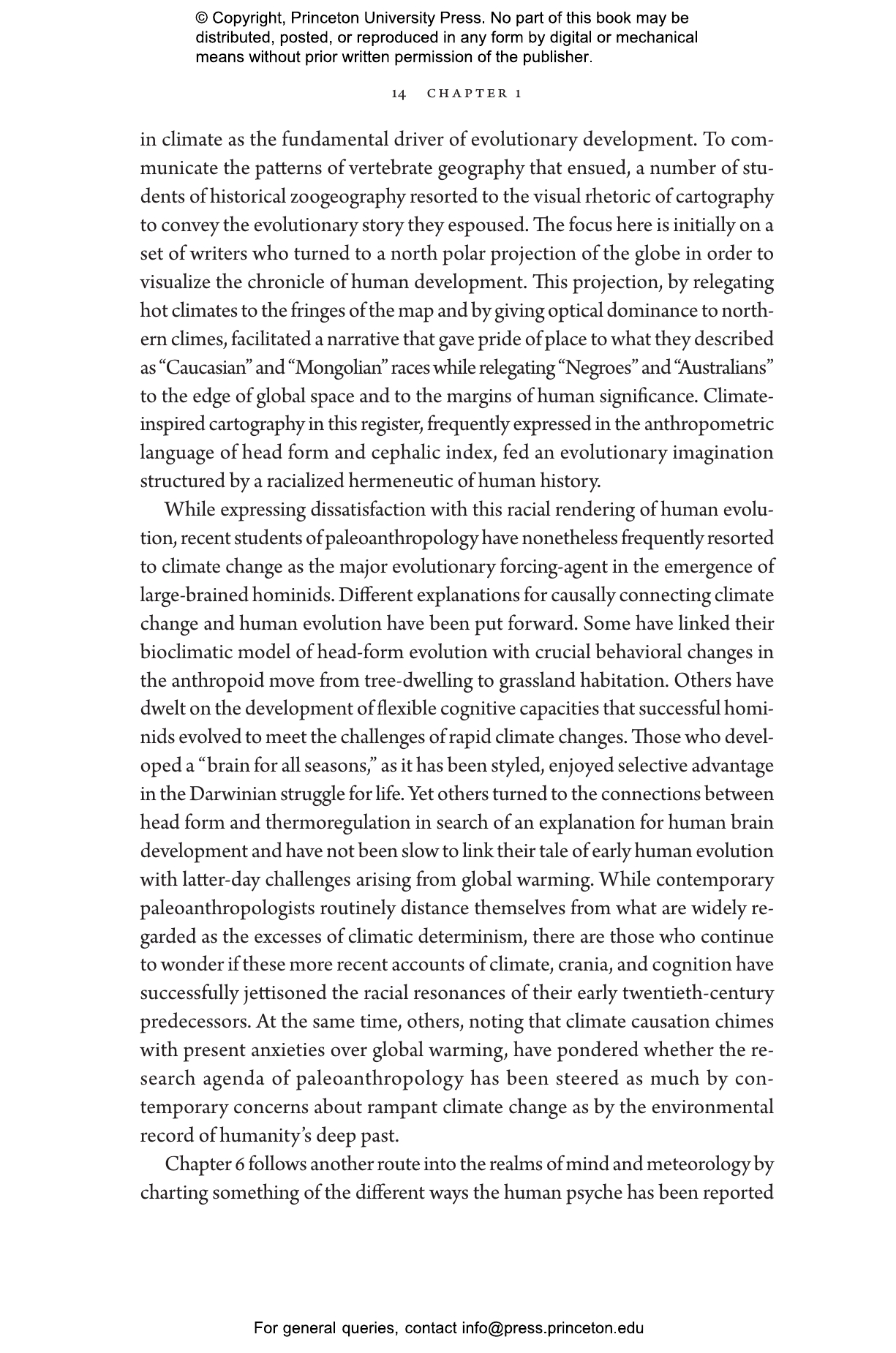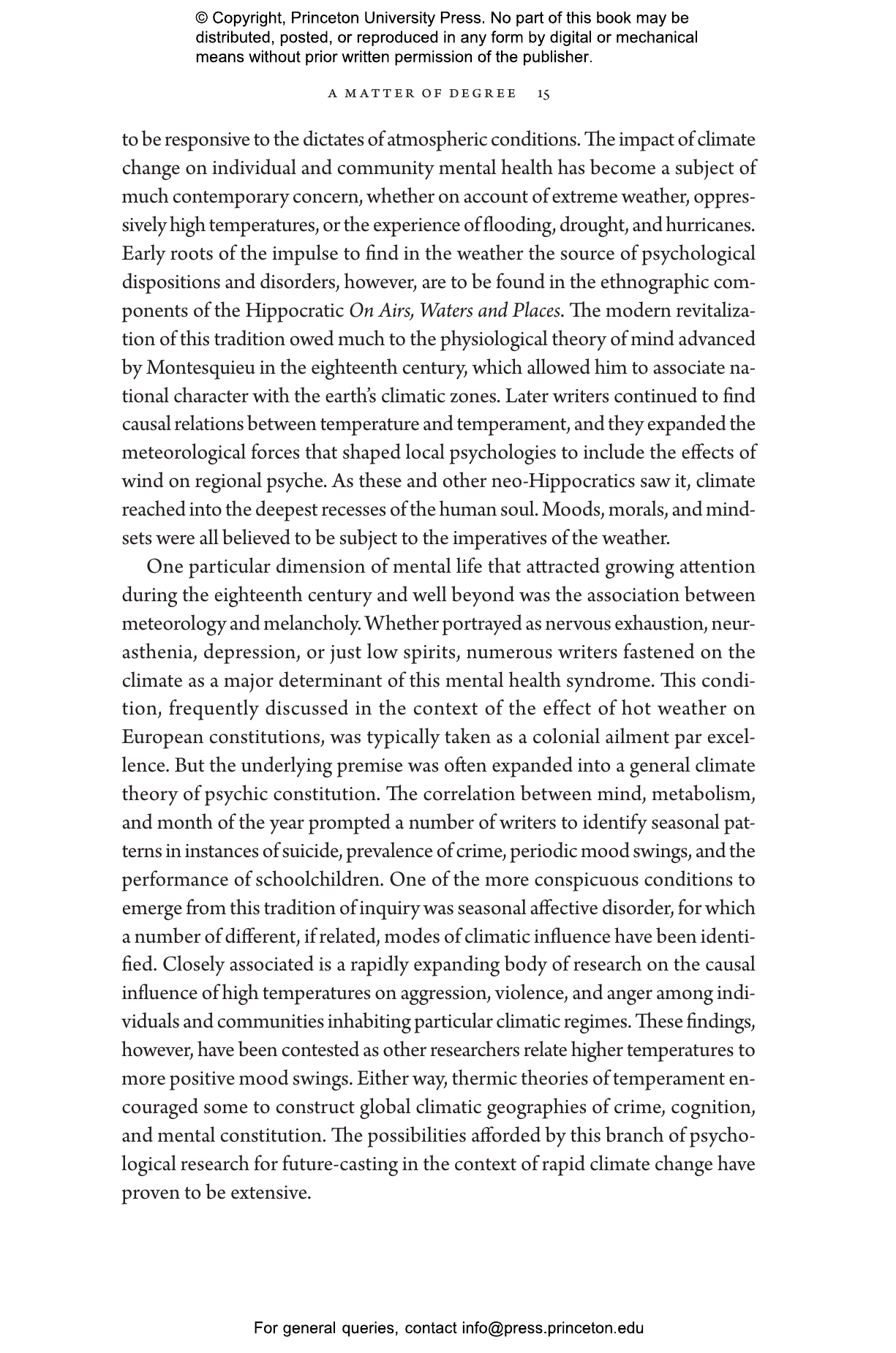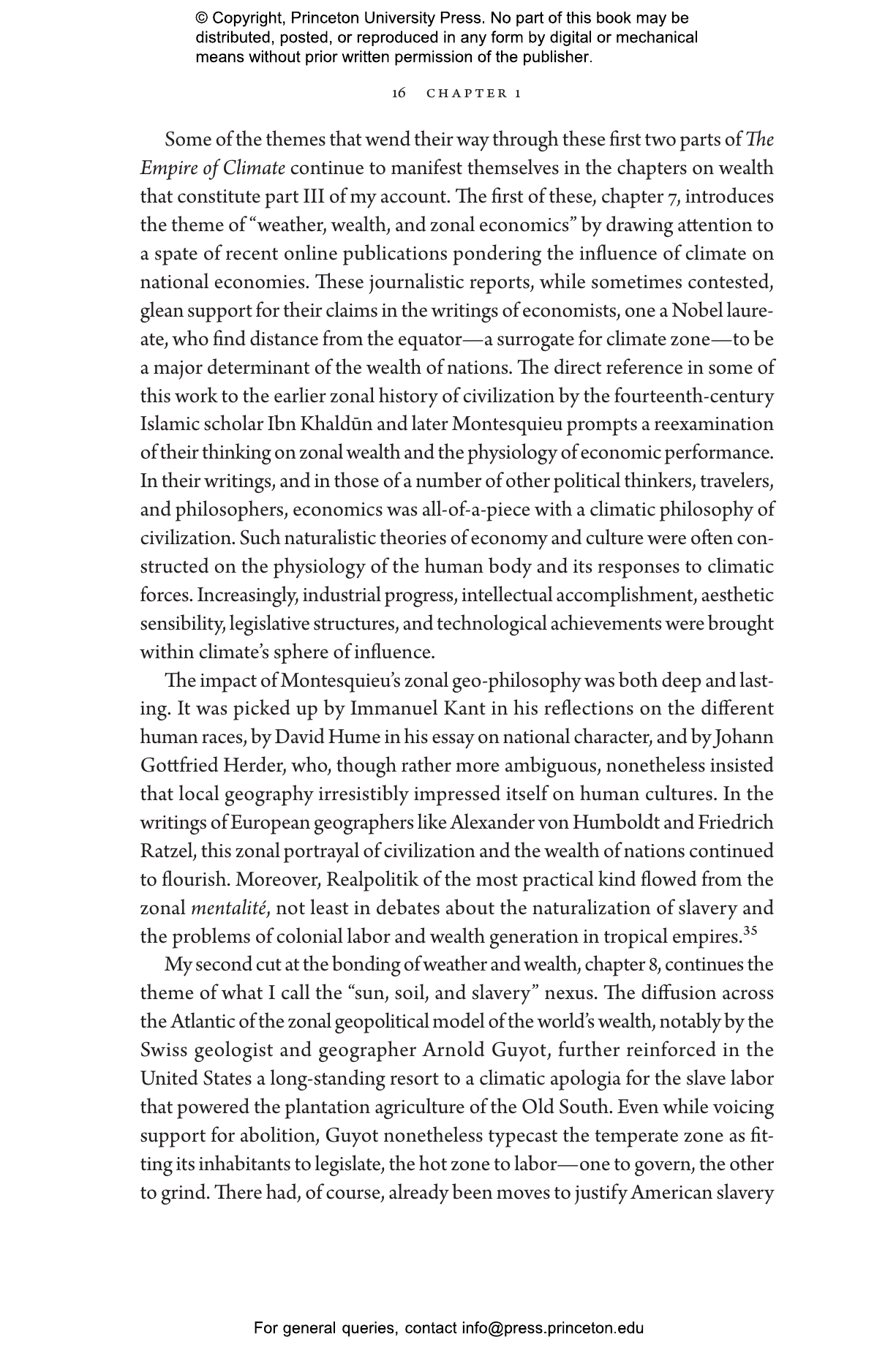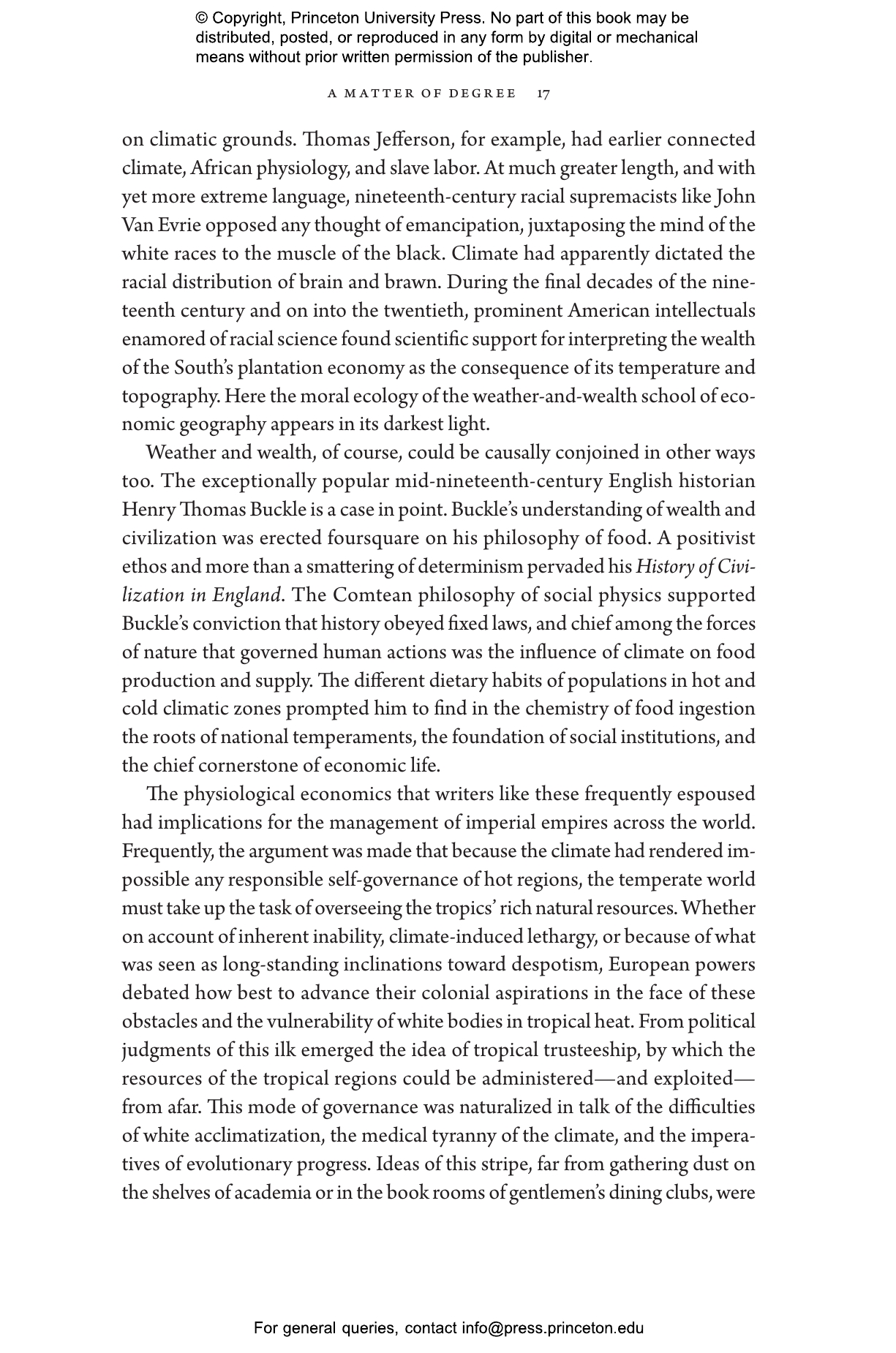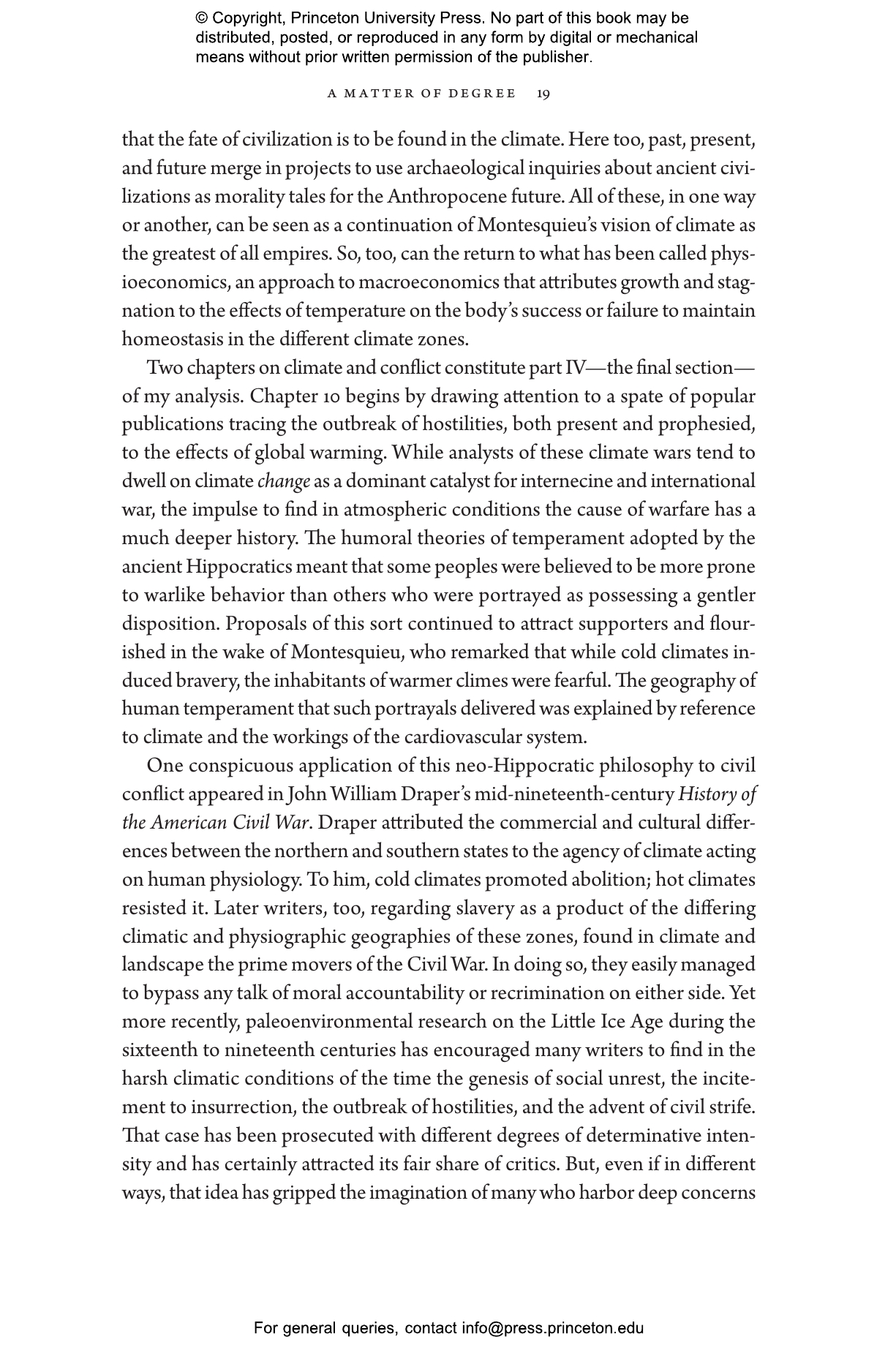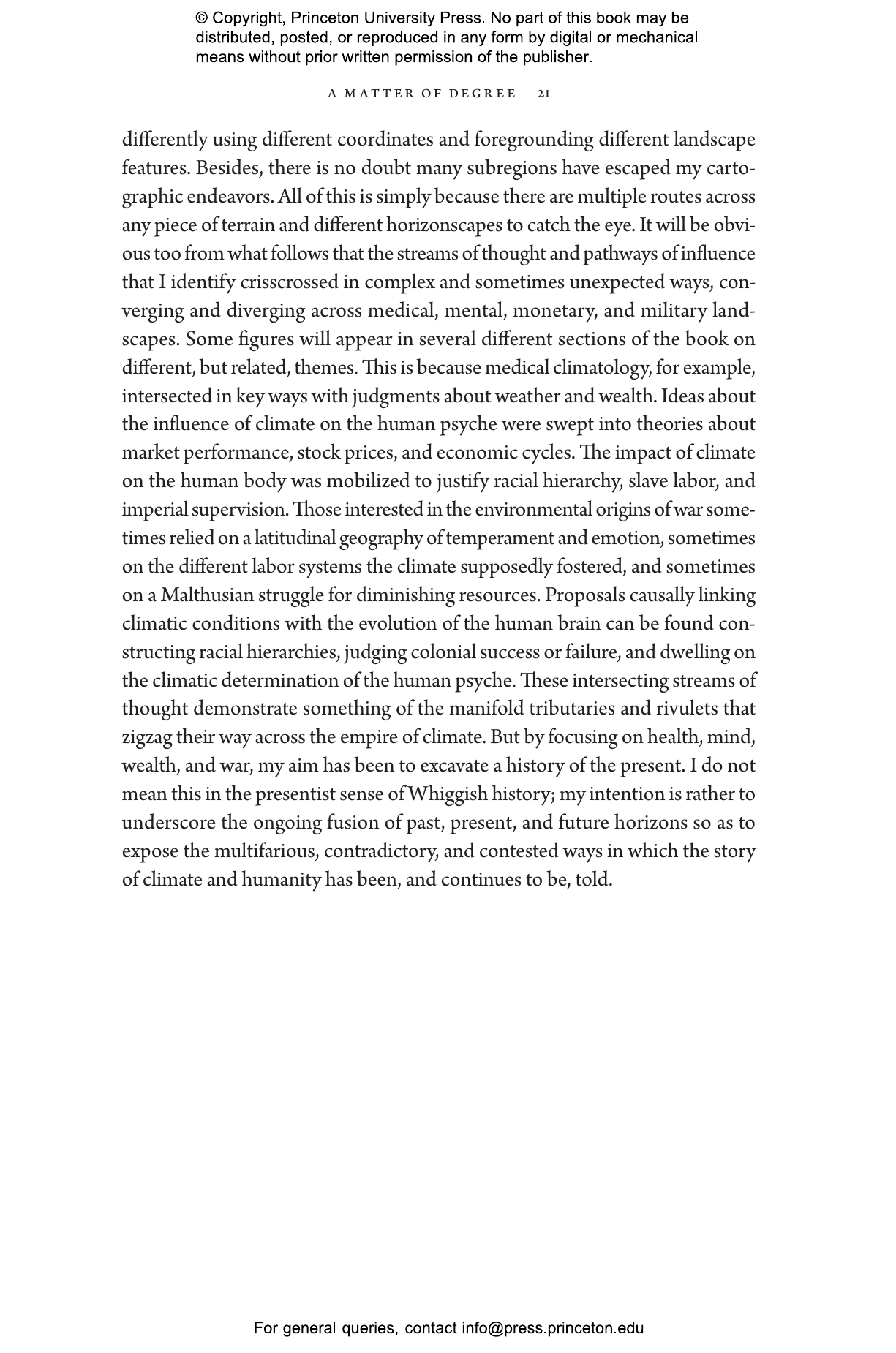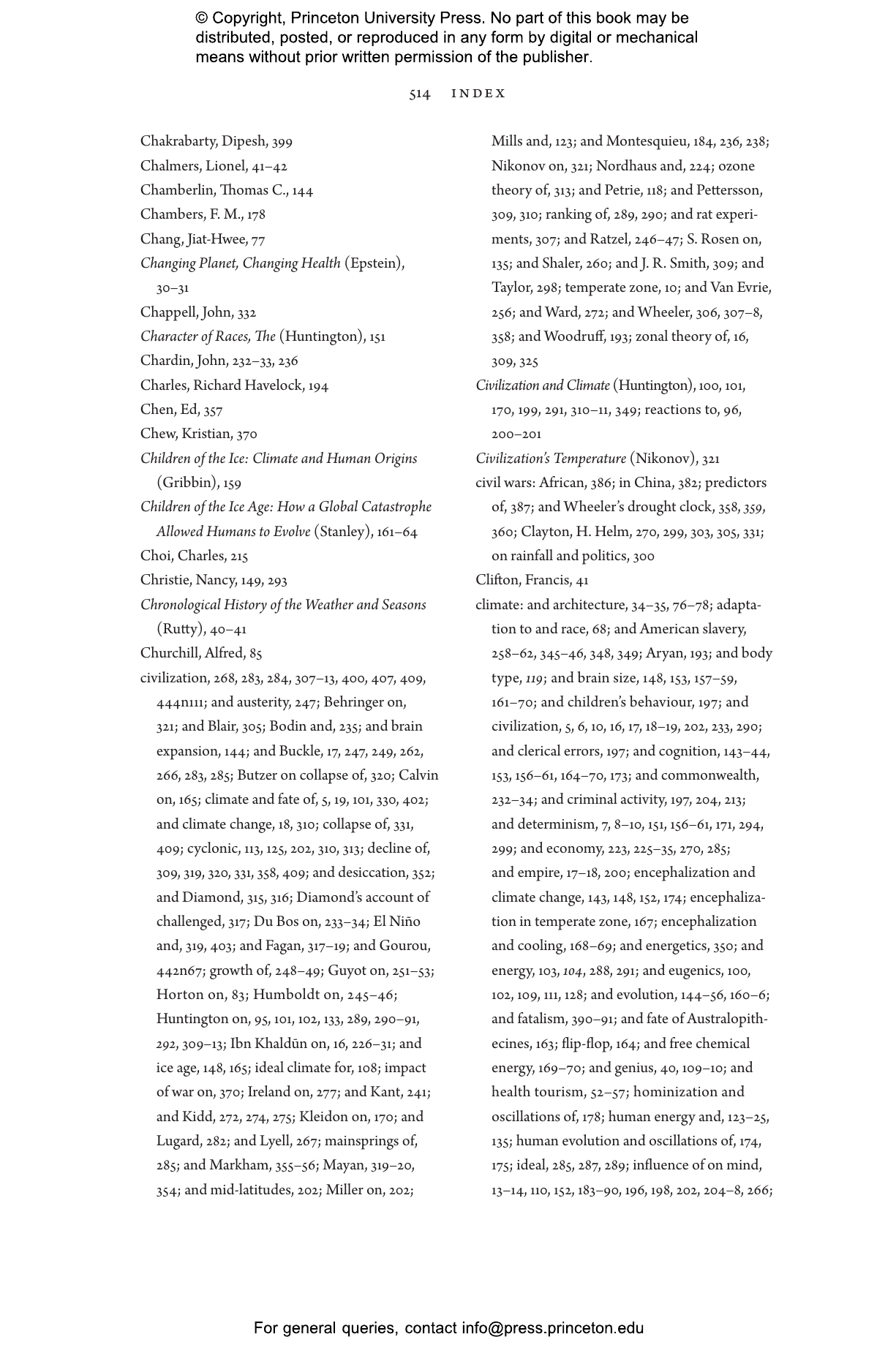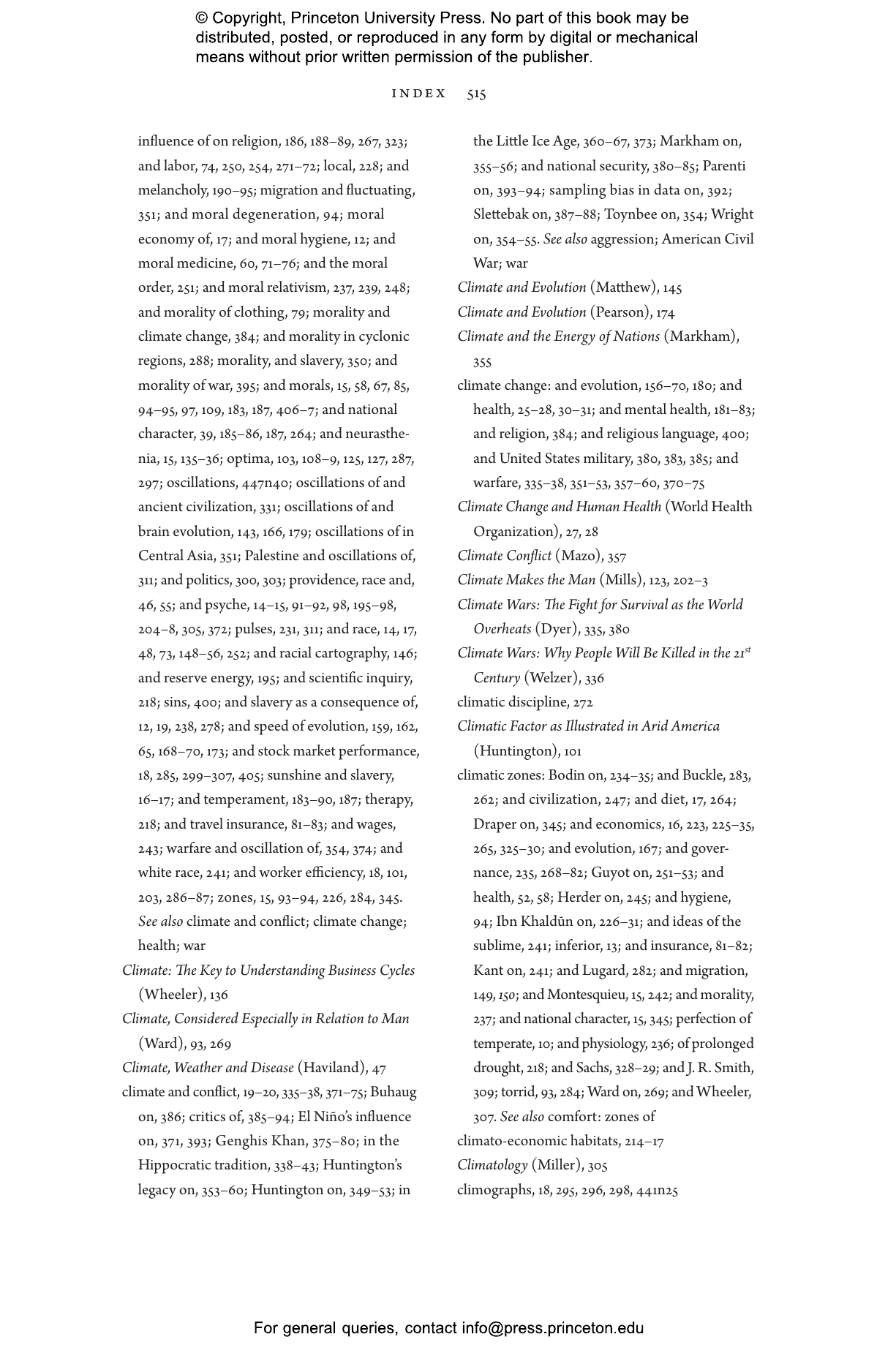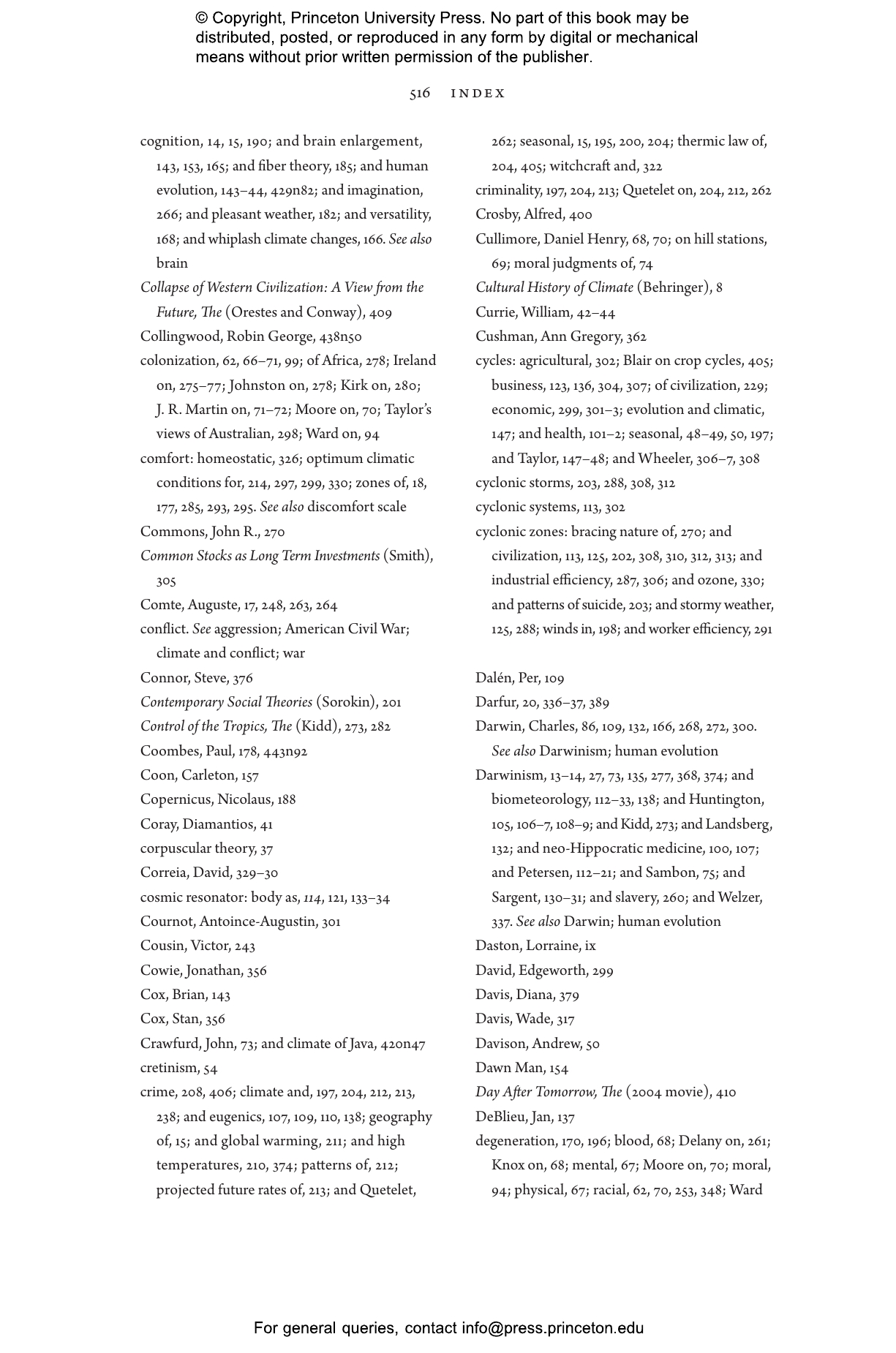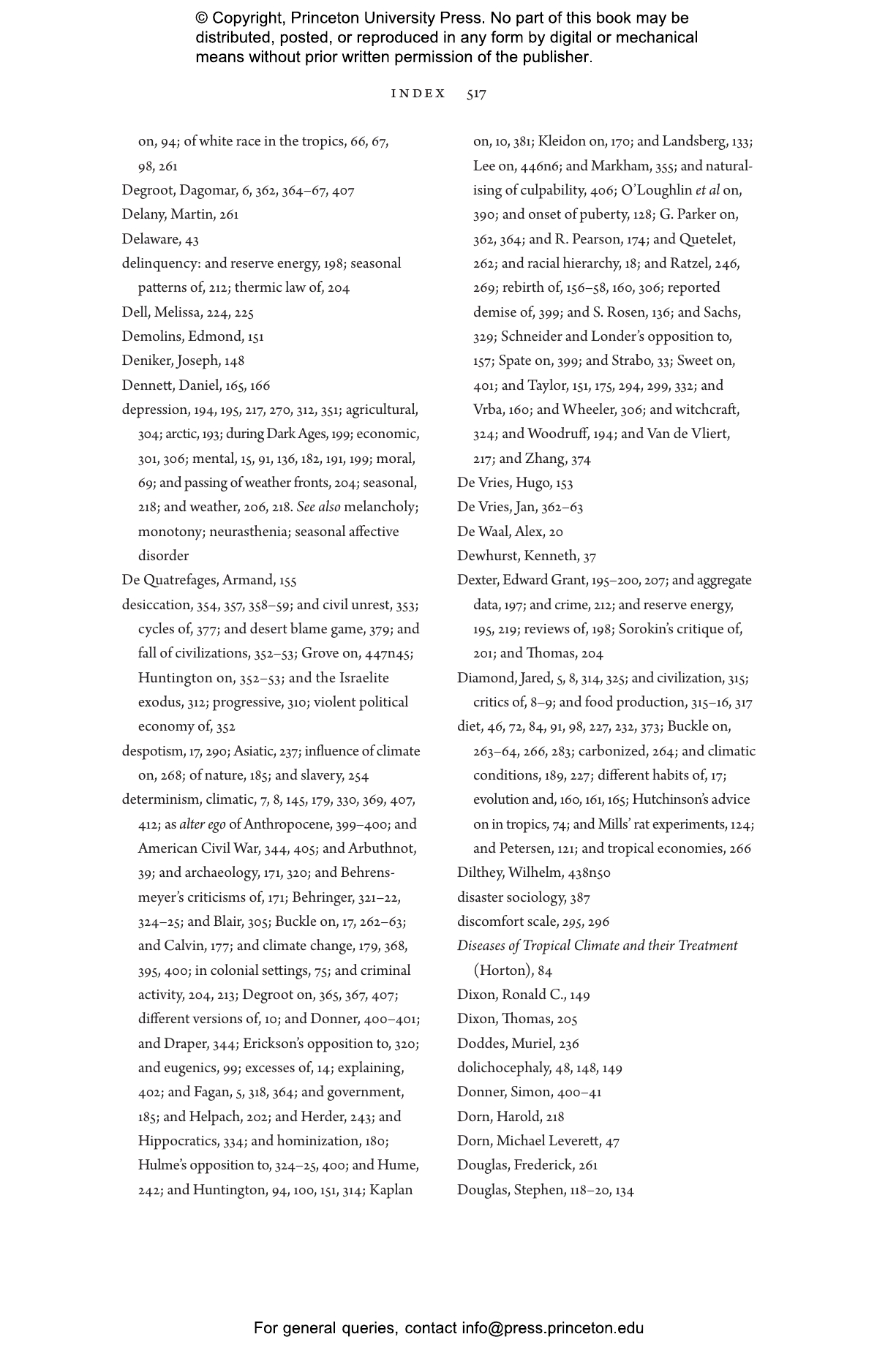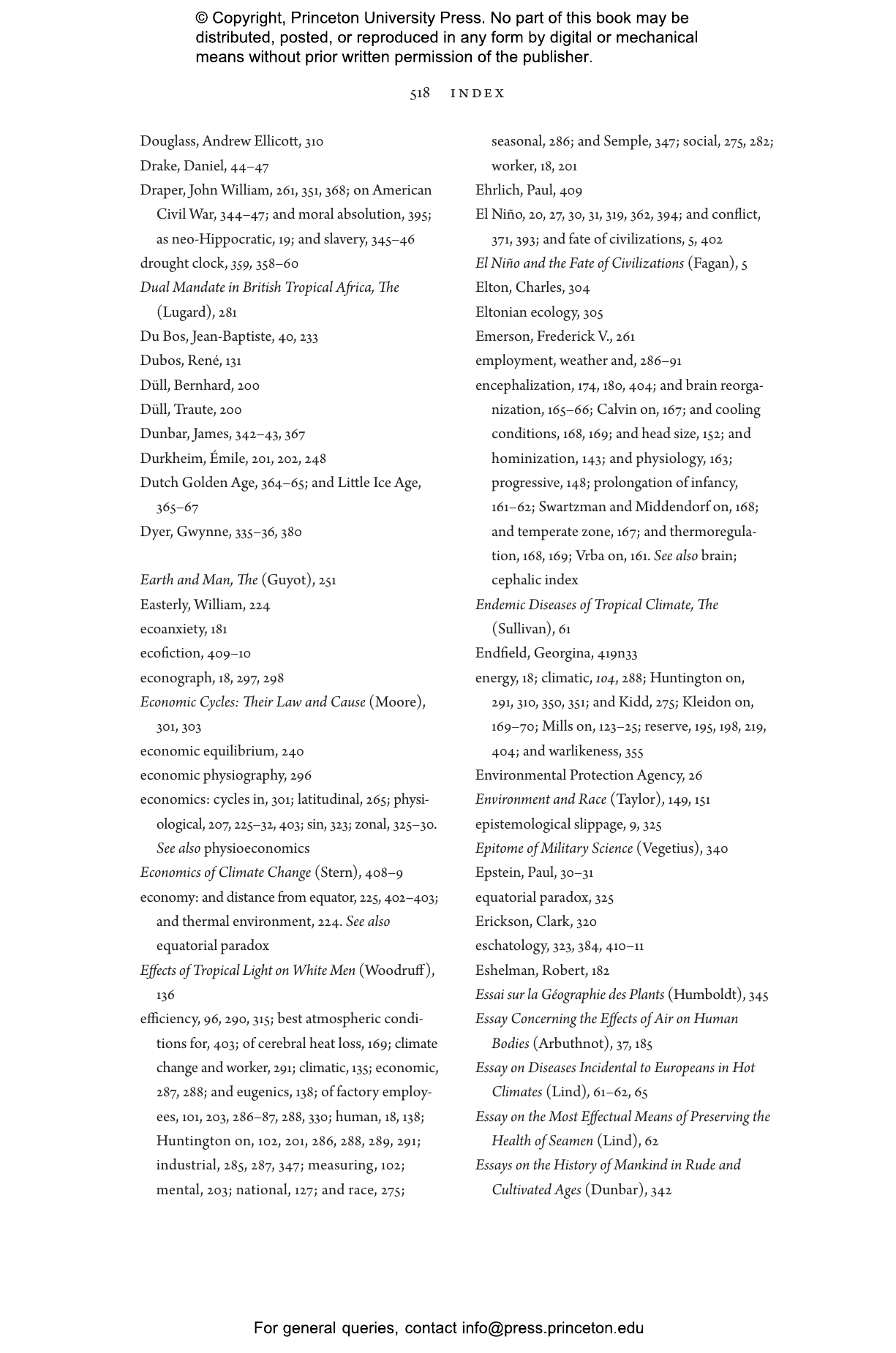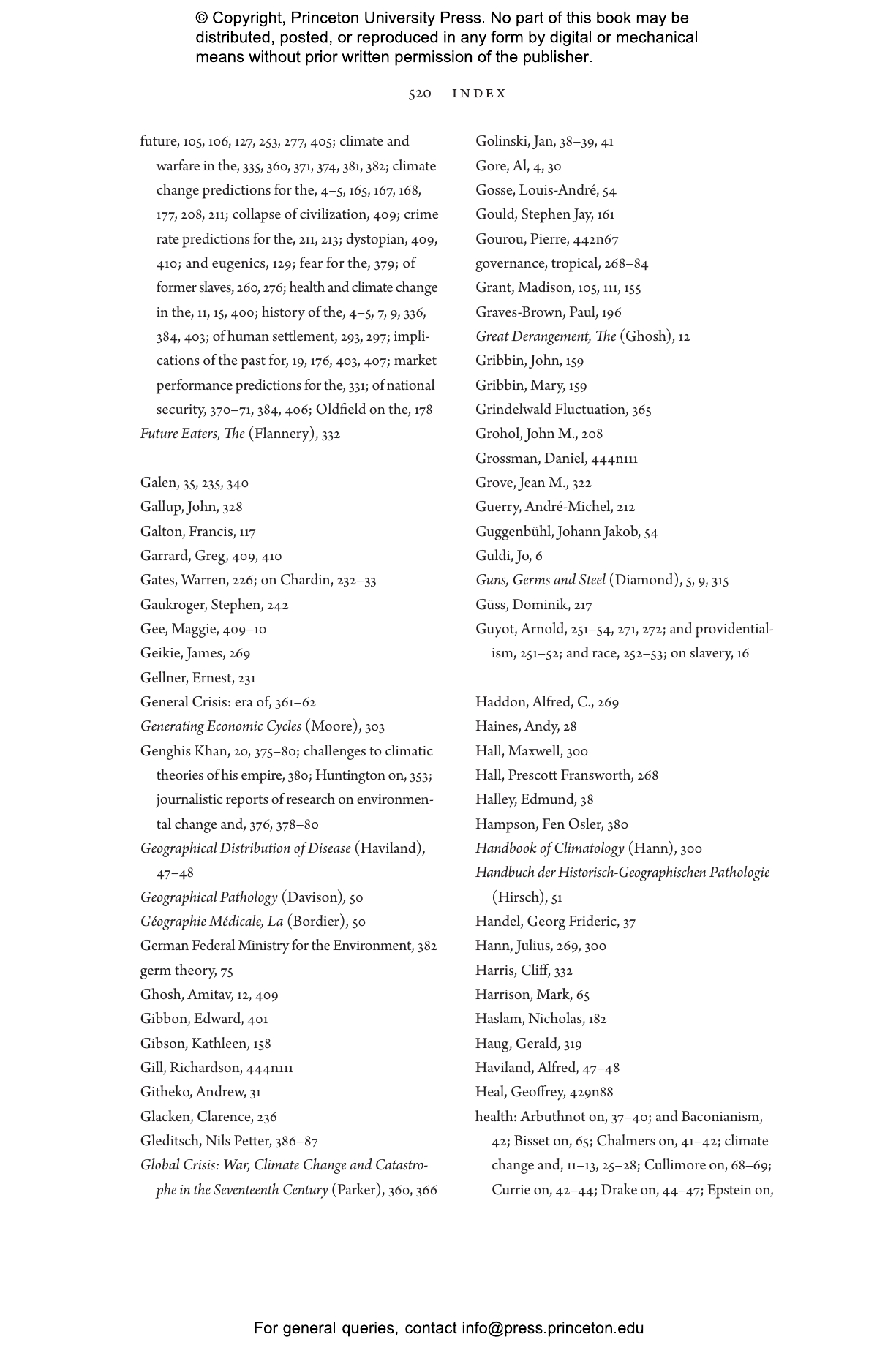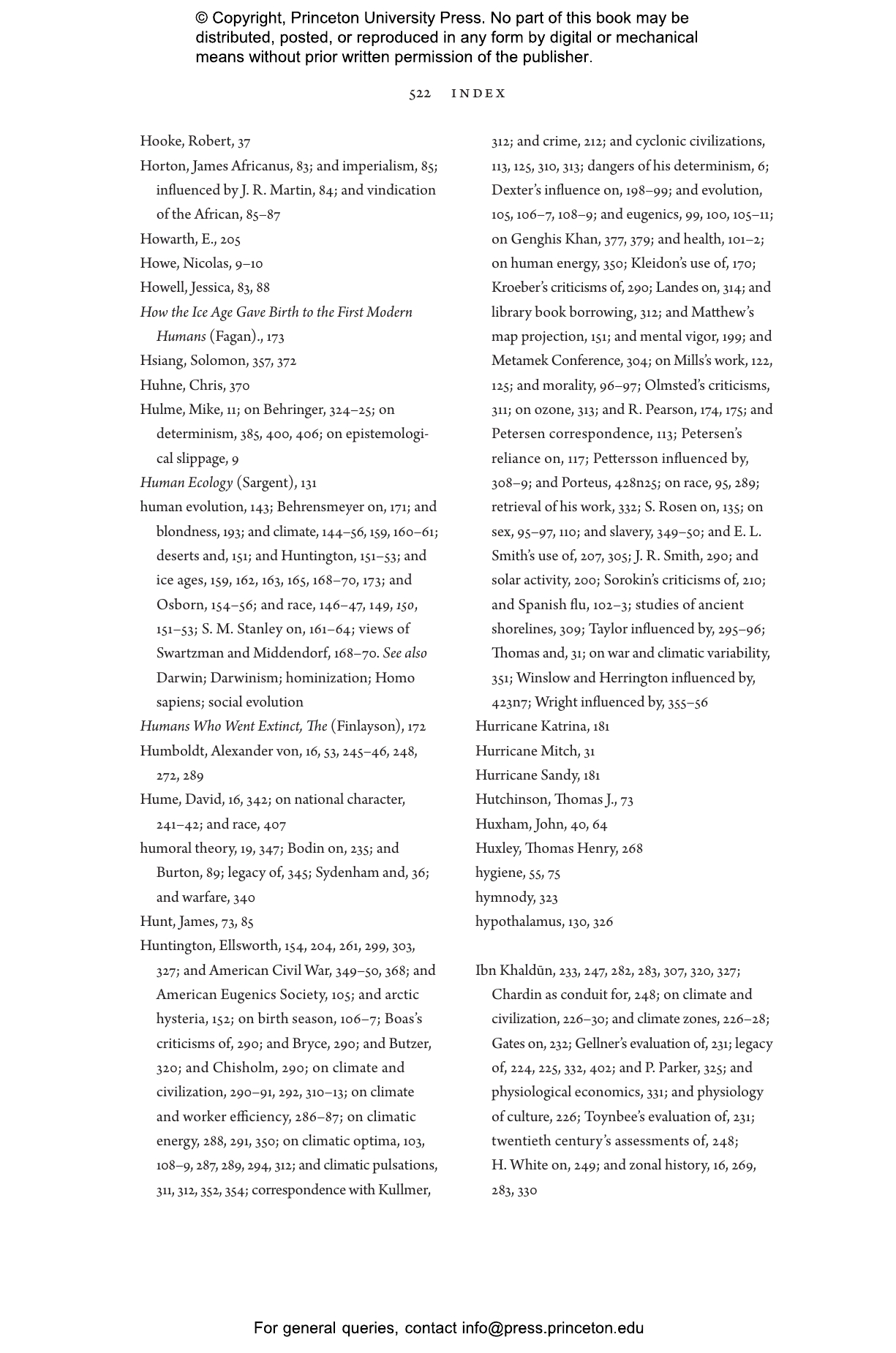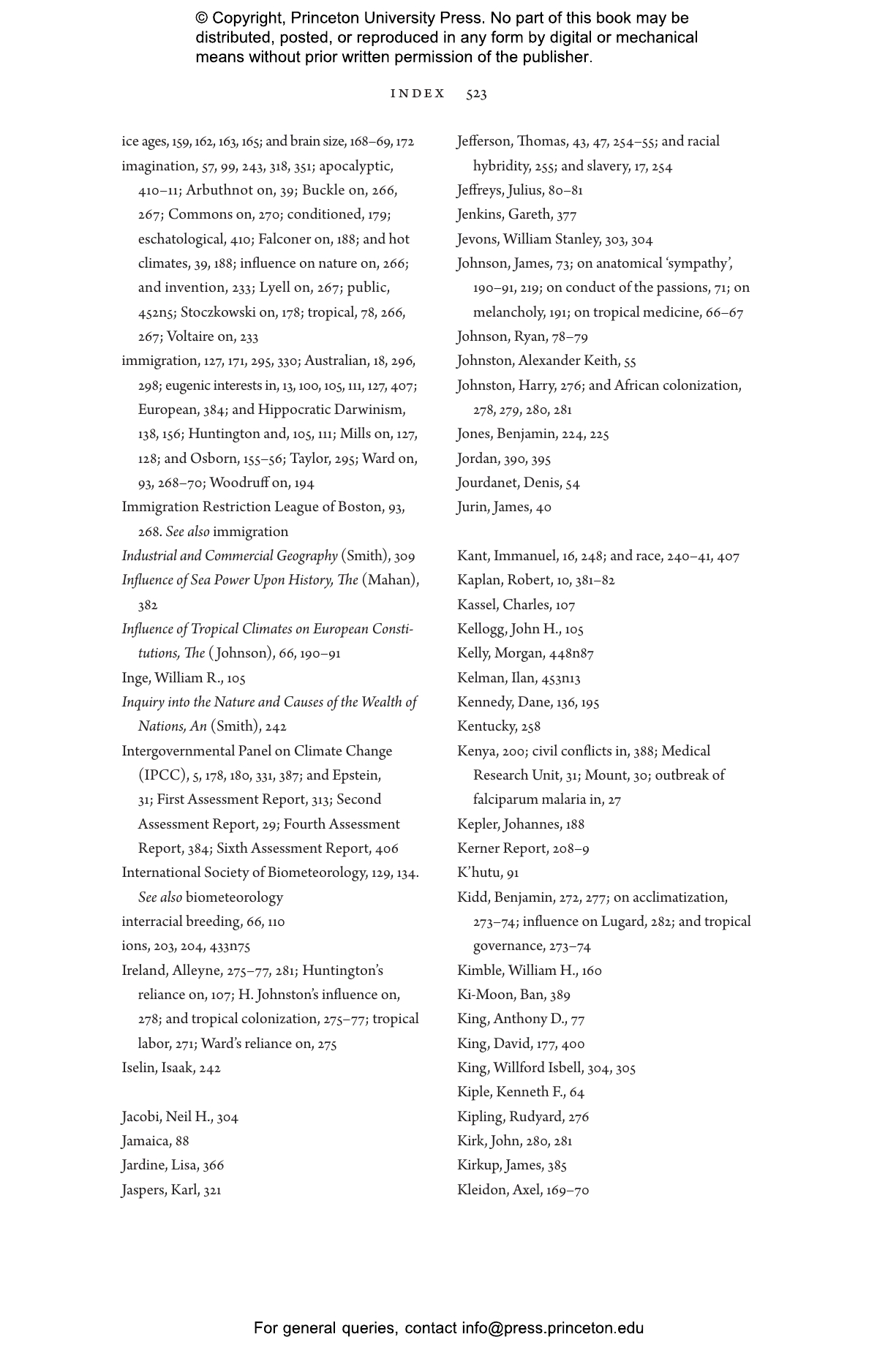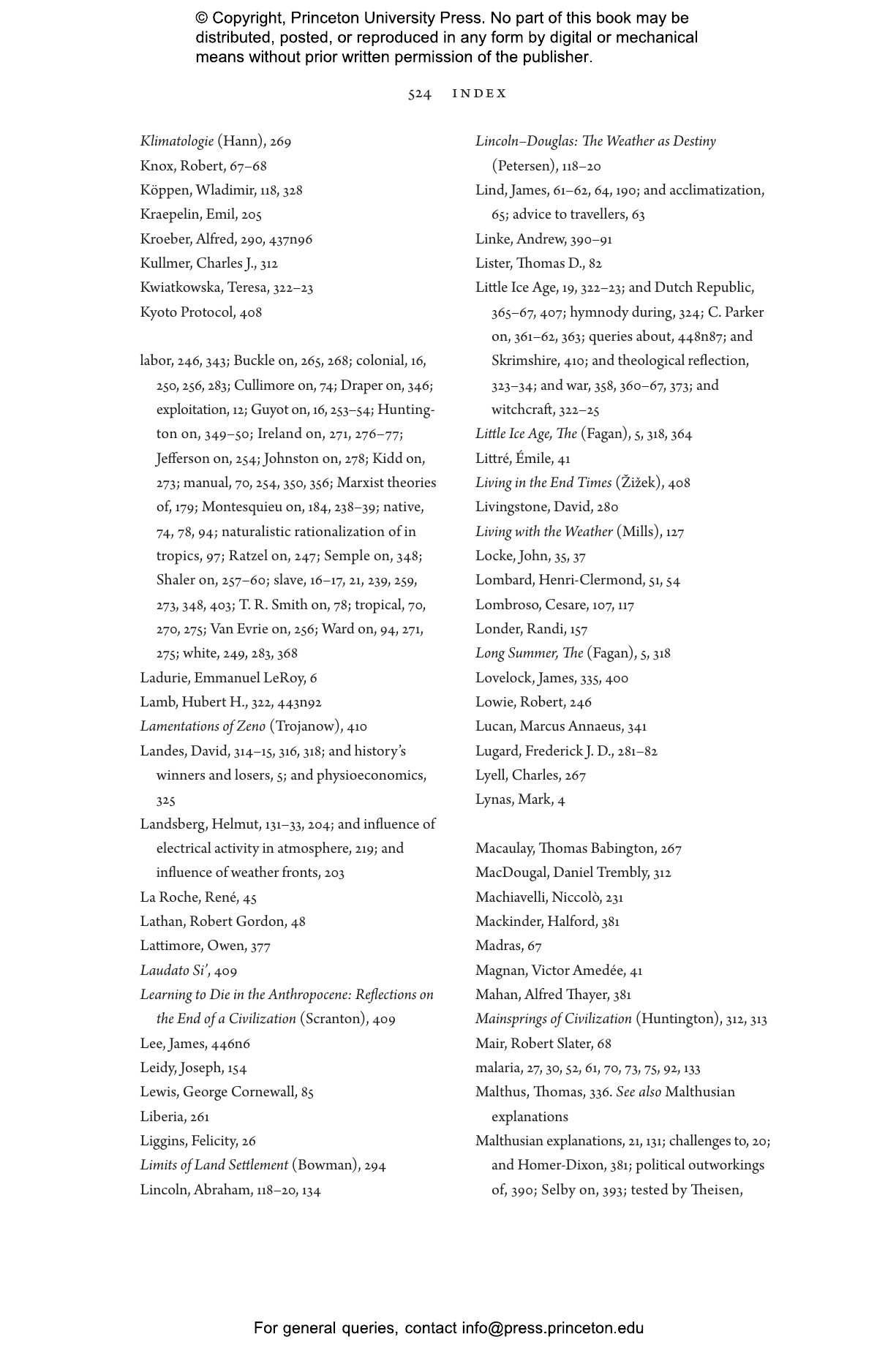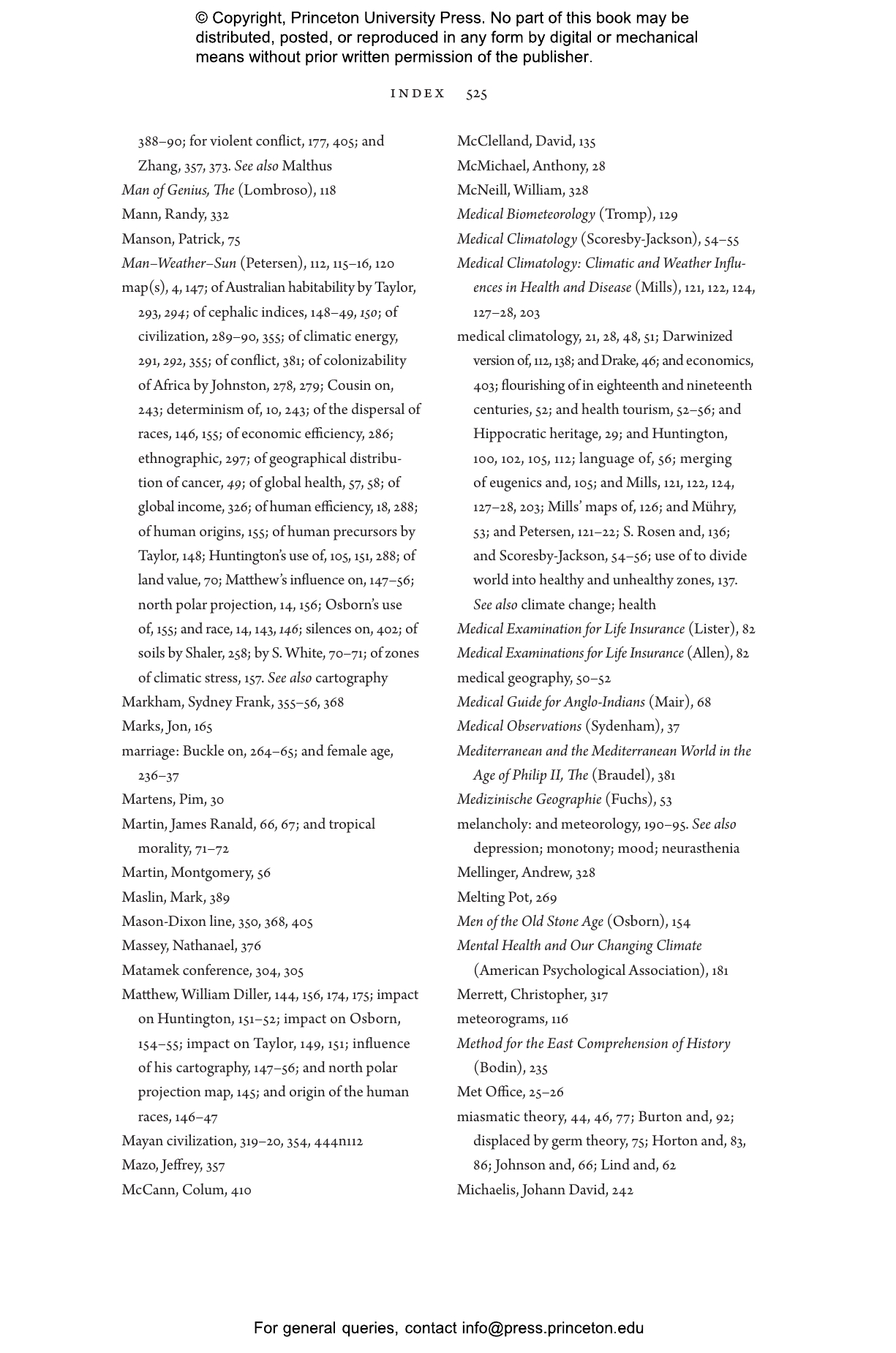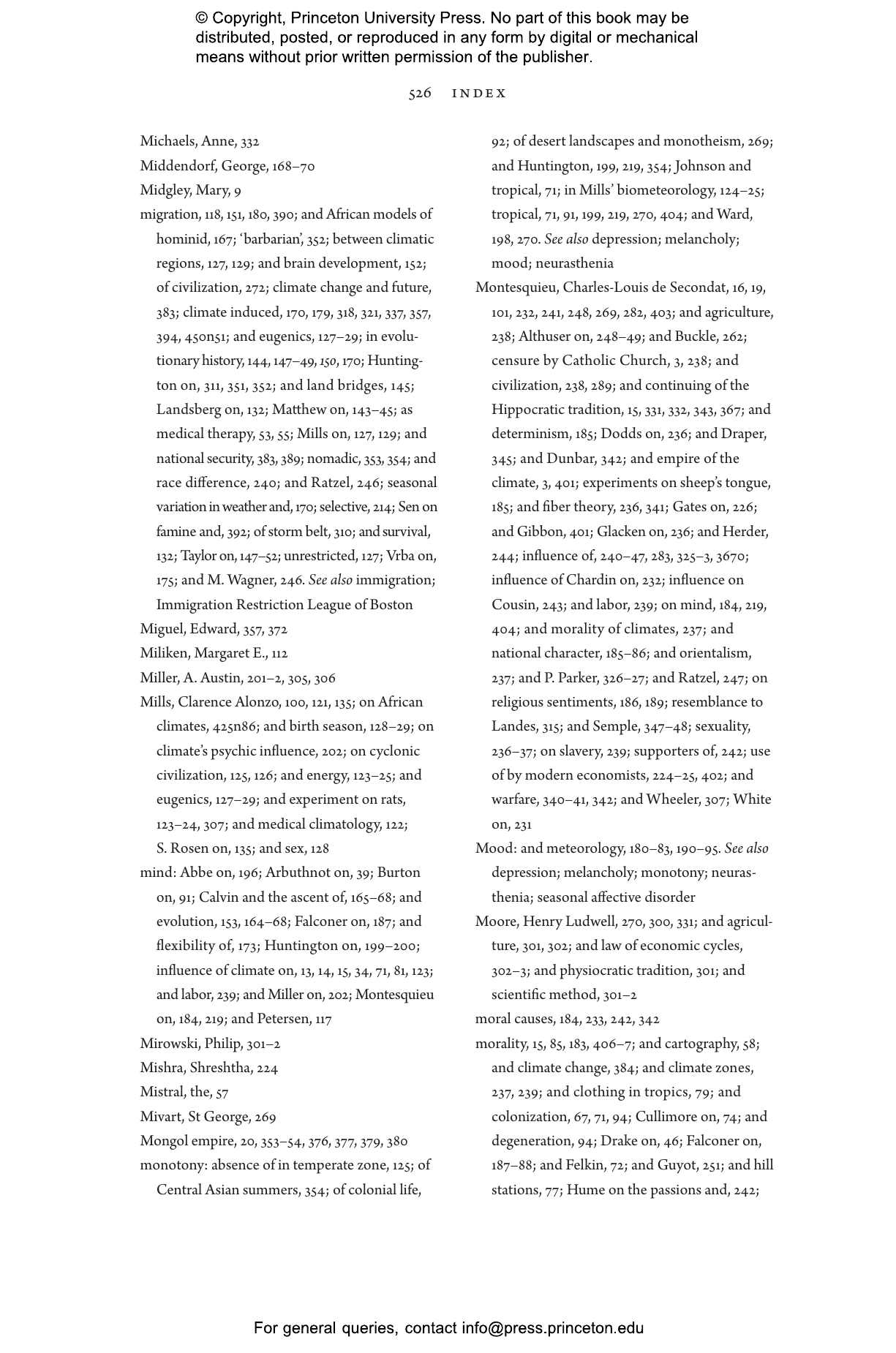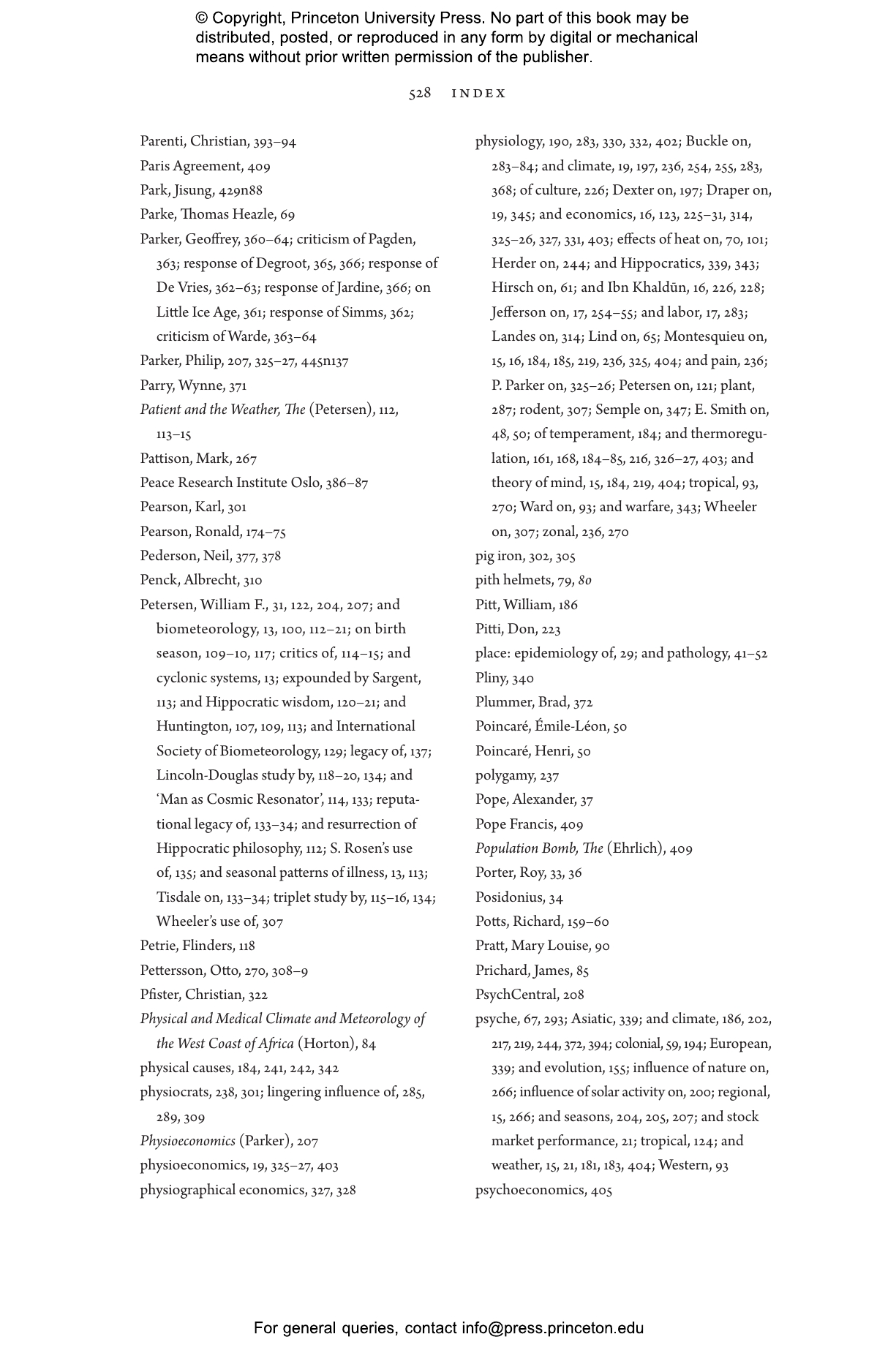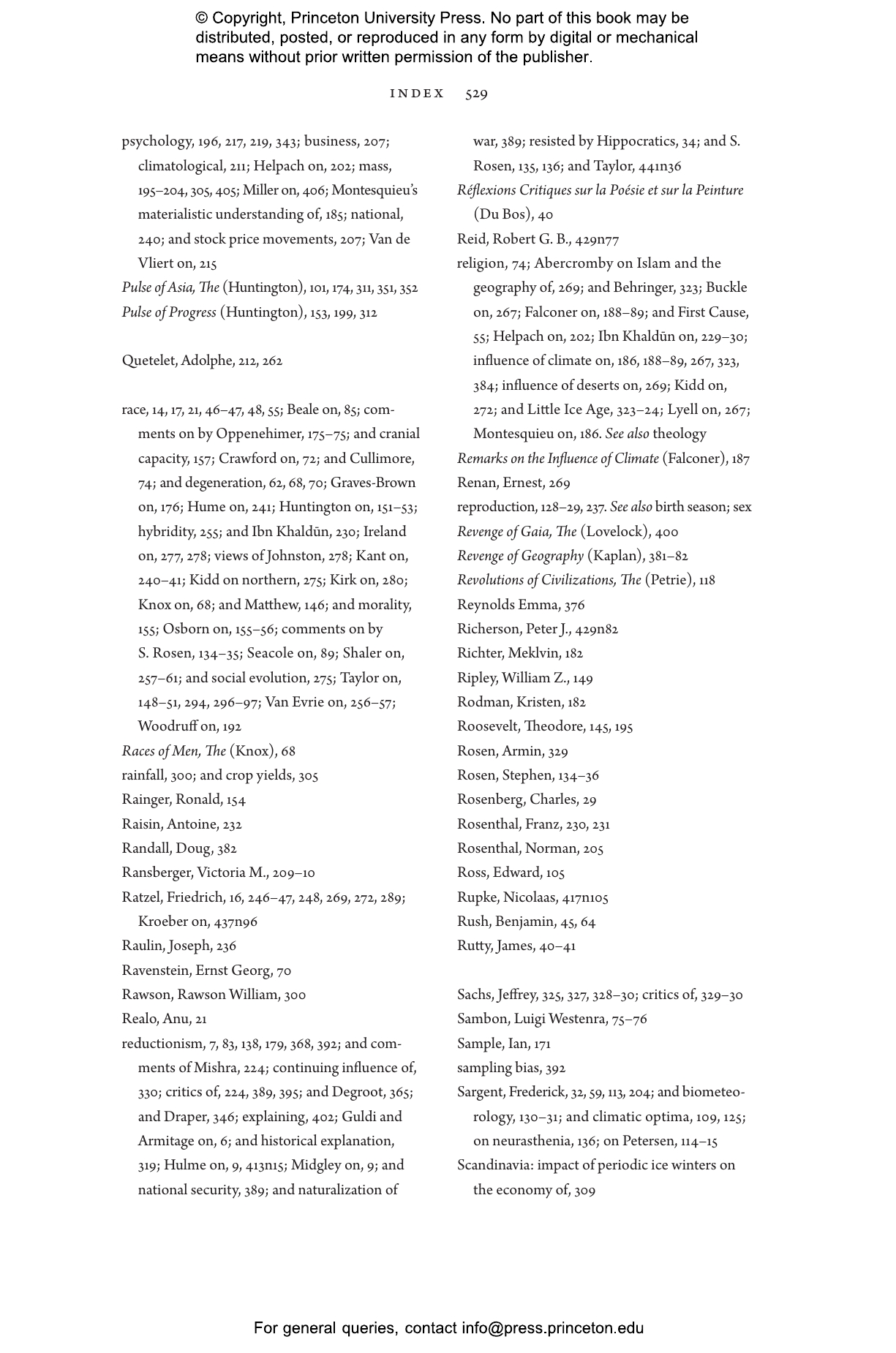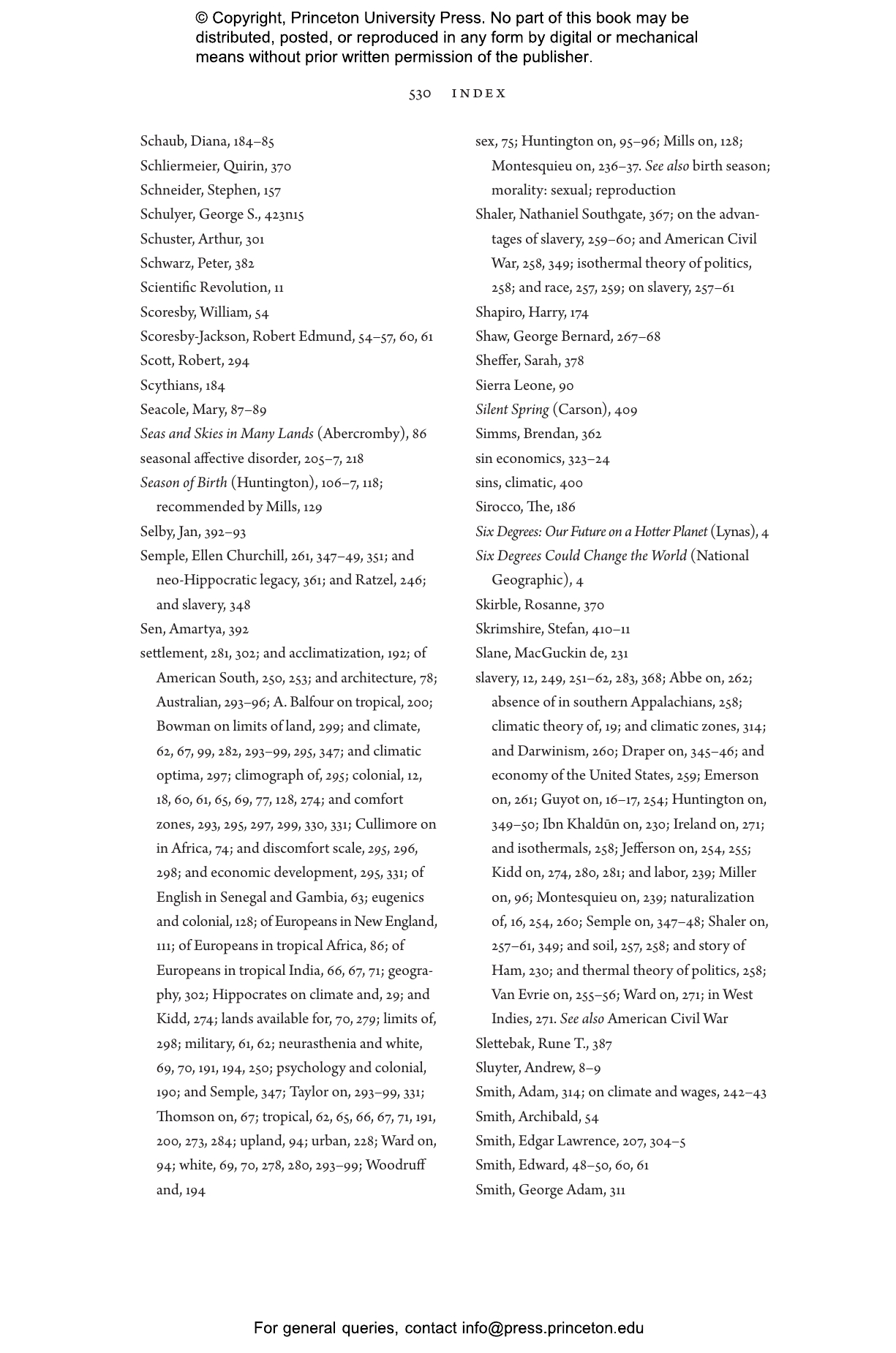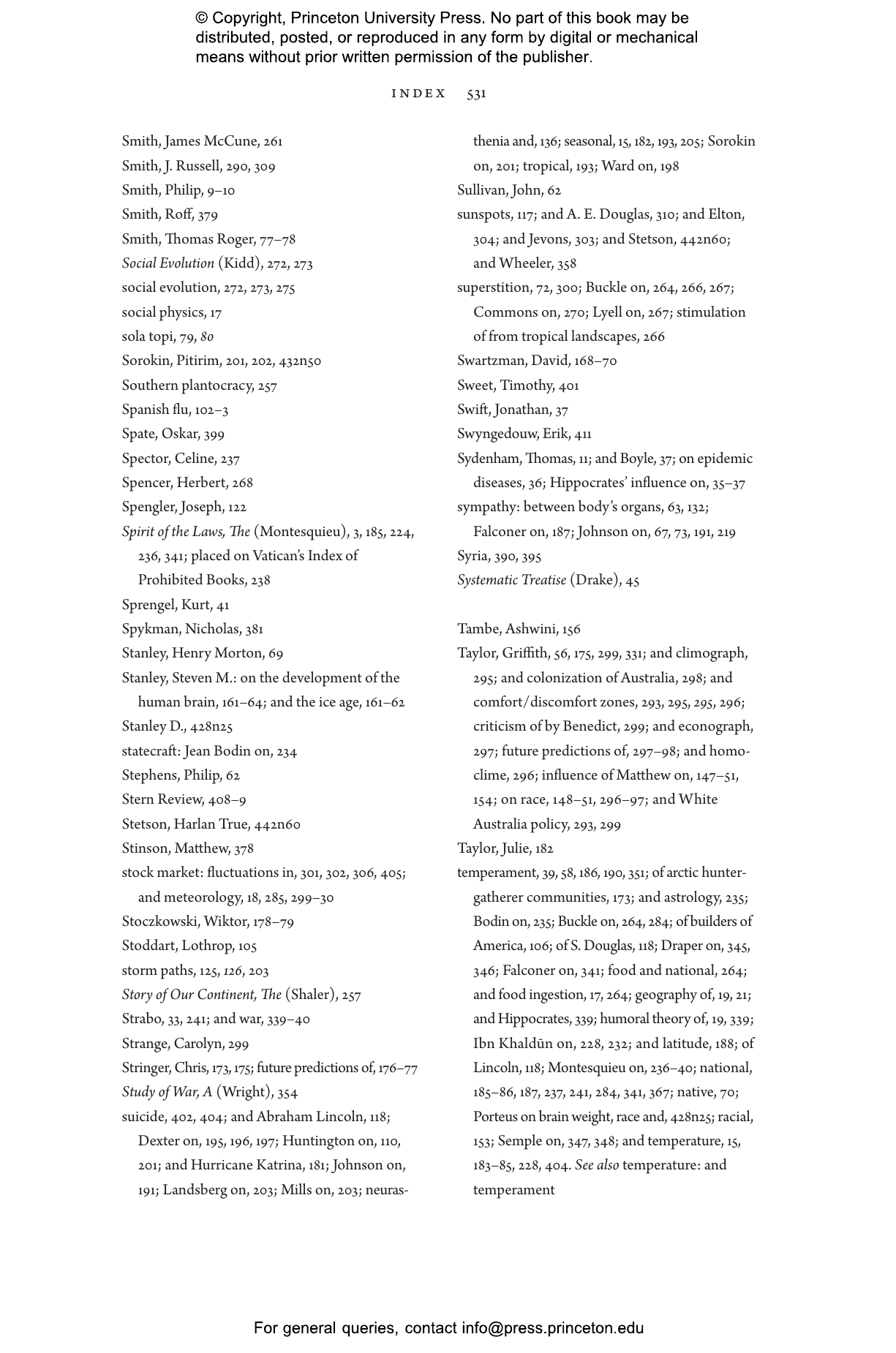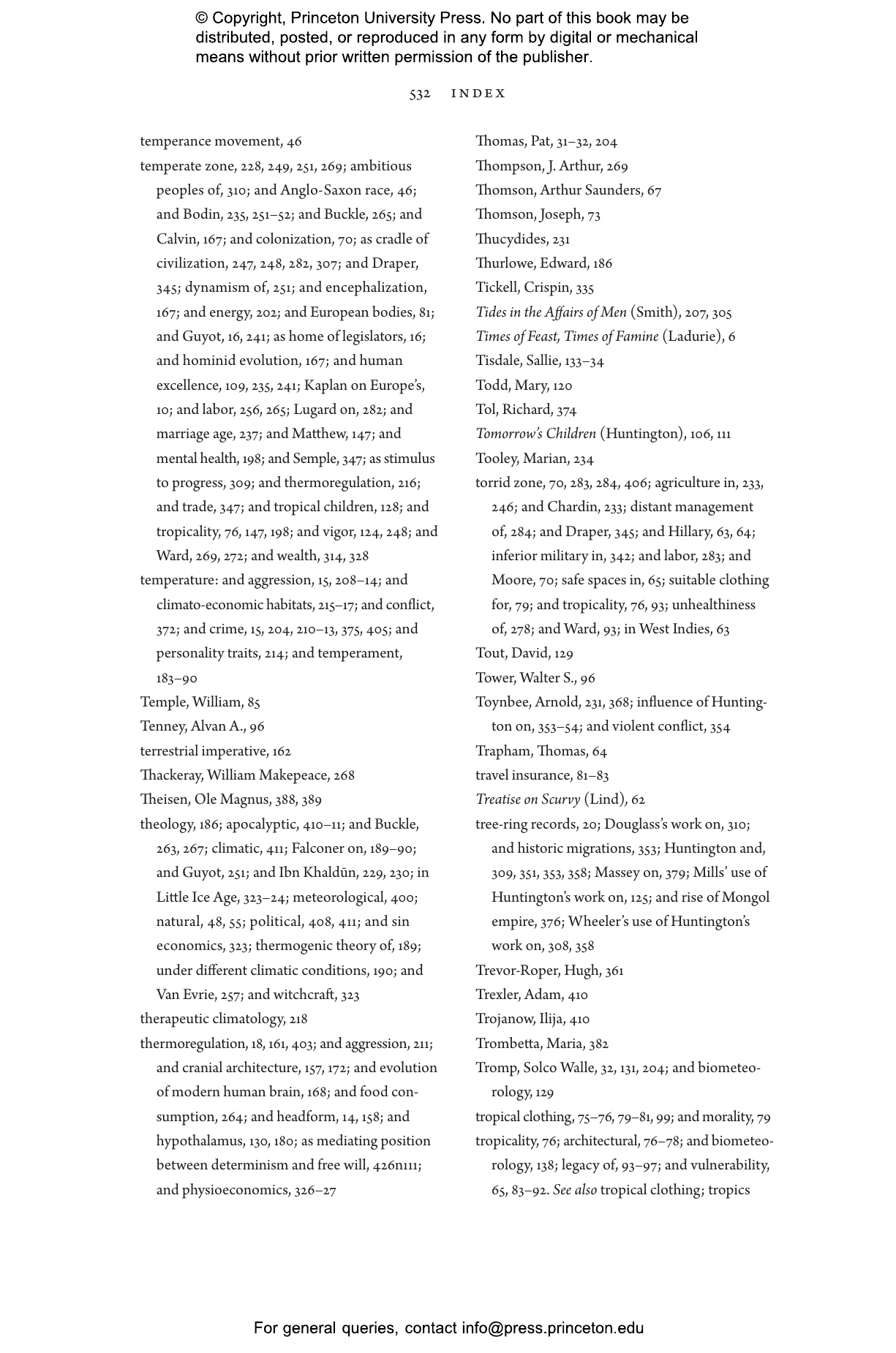Scientists, journalists, and politicians increasingly tell us that human impacts on climate constitute the single greatest threat facing our planet and may even bring about the extinction of our species. Yet behind these anxieties lies an older, much deeper fear about the power that climate exerts over us. The Empire of Climate traces the history of this idea and its pervasive influence over how we interpret world events and make sense of the human condition, from the rise and fall of ancient civilizations to the afflictions of the modern psyche.
Taking readers from the time of Hippocrates to the unfolding crisis of global warming today, David Livingstone reveals how climate has been critically implicated in the politics of imperial control and race relations; been used to explain industrial development, market performance, and economic breakdown; and served as a bellwether for national character and cultural collapse. He examines how climate has been put forward as an explanation for warfare and civil conflict, and how it has been identified as a critical factor in bodily disorders and acute psychosis.
A panoramic work of scholarship, The Empire of Climate maps the tangled histories of an idea that has haunted our collective imagination for centuries, shedding critical light on the notion that everything from the wealth of nations to the human mind itself is subject to climate’s imperial rule.
Awards and Recognition
- A Choice Outstanding Academic Title of the Year
David N. Livingstone is professor emeritus of geography and intellectual history at Queen’s University Belfast. He is a fellow of the British Academy and a member of the Royal Irish Academy. His many books include Putting Science in Its Place: Geographies of Scientific Knowledge; Dealing with Darwin: Place, Politics, and Rhetoric in Religious Engagements with Evolution; and Adam’s Ancestors: Race, Religion, and the Politics of Human Origins.
"[A] sweeping chronicle. . . . Livingstone’s consummate analysis drives home how blaming people’s behavior on climate risks repeating the imperious and racist justifications for colonialism and slavery."—Publishers Weekly
"[A] fascinating study. . . . Highly recommended."—Choice
"Brilliant and multifaceted."—David Lorimer, Paradigm Explorer
“This brilliant, insightful, and important book reveals the deep-seated links between climate, capitalism, and civilization. Livingstone is on top of his game as he moves from early ideas about the climatic determinants of health and wealth to the politics of imperial control, representations of national character, modern economic development, and the pursuit of war, to end with our own horrified recognition of likely global collapse. There could be no better scholarly guide to thinking about the cultural meanings of climate and its history.”—Janet Browne, author of Charles Darwin: Voyaging and Charles Darwin: The Power of Place
“This book represents a most important benchmark publication. Livingstone brilliantly embraces both depth and breadth of subject matter with a clever and insightful scholarly interrogation of the ways in which climate as an idea has been adopted, adapted, and appropriated.”—Georgina Endfield, University of Liverpool
“There are two serious mistakes that can be made when judging the influence of climate on human affairs. One is to ignore it completely; the other to grant climate excessive explanatory power over our minds, health, wealth, and misfortunes. In The Empire of Climate, Livingstone shows with erudition and clarity how, in our current climate-obsessed condition, we are failing to learn from our past about the grave cultural, political, and ethical dangers that follow from this latter mistake.”—Mike Hulme, University of Cambridge
“This is the magnum opus of one of the world’s leading historians of environmental ideas and the distillation of decades of research. Spanning antiquity to the Anthropocene, Livingstone offers compelling genealogies of how Western thinkers have conceptualized the linkage between the physical environment and climate on the one hand and human beings on the other. The Empire of Climate is both historically rich and pointedly pertinent as we map humanity’s relationship with the planet now and into the future.”—Robert J. Mayhew, editor of Debating Malthus: A Documentary Reader on Population, Resources, and the Environment
“A masterful and exemplary overview of the impact of thought about climate on our sociopolitical life.”—Nicolaas A. Rupke, author of Alexander von Humboldt: A Metabiography



